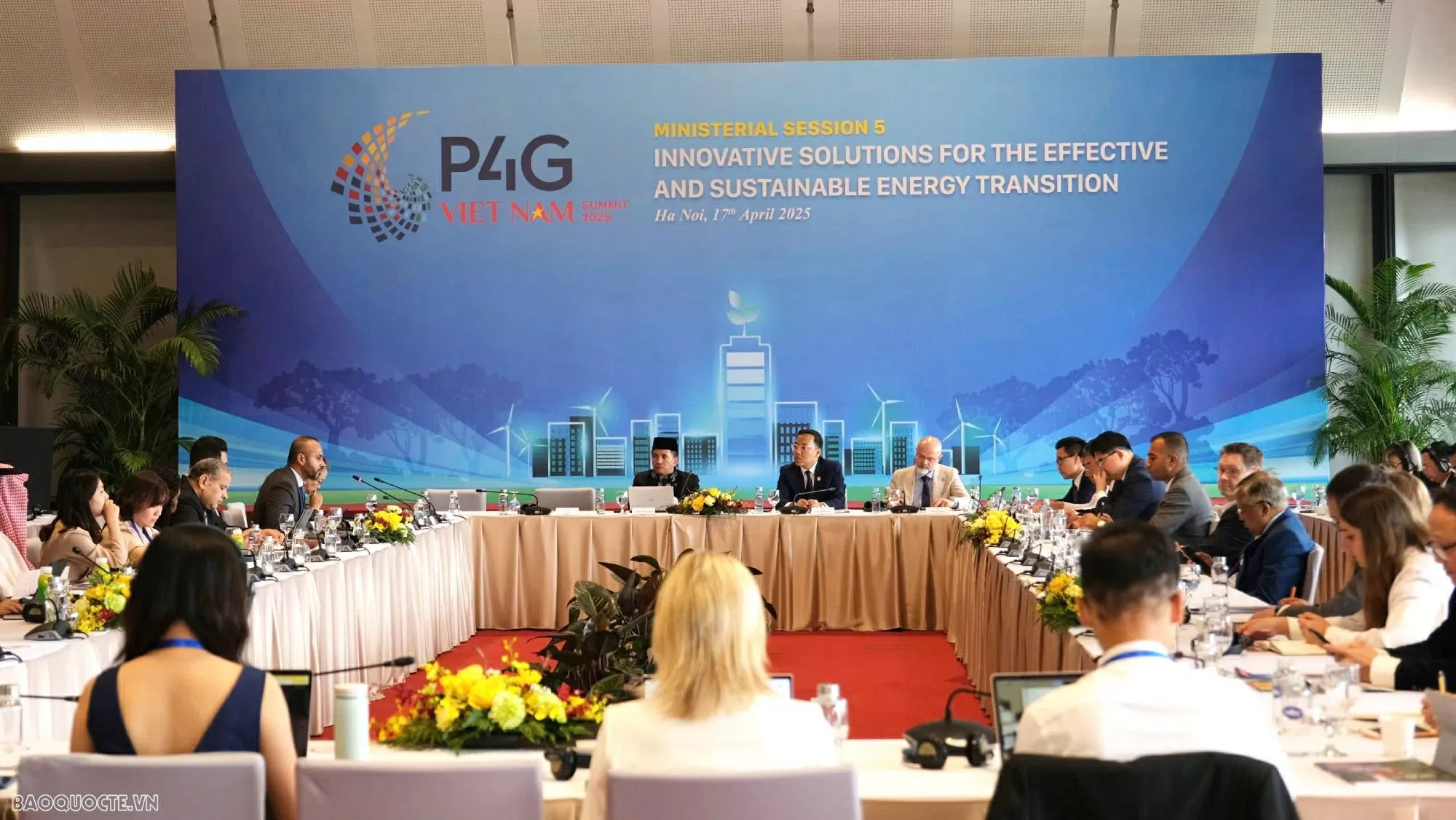 |
| Overview of the discussion session “Innovative solutions in efficient and sustainable energy conversion”. (Photo: Bich Quyen) |
Attending the discussion session were Deputy Minister of Industry and Trade Nguyen Hoang Long, Ethiopian Minister of Planning and Development Adela Fitsum Assefa, Ethiopian Minister of Urban Development and Infrastructure Ibrahim Chaltu Sani, Indonesian Deputy Minister of National Development Planning Leonardo AA Teguh Sambodo, Chinese Deputy Minister of Ecology and Environment Guo Fang, Italian Special Envoy on Climate Change Francesco Corvaro, and Vice Chairman of Ninh Thuan Provincial People's Committee Trinh Minh Hoang.
3 important orientations of Vietnam
In his opening remarks, Deputy Minister of Industry and Trade Nguyen Hoang Long emphasized that the world is currently facing huge challenges and impacts of climate change, the environment and depletion of natural resources. Therefore, energy transition is not just an option but an urgent and inevitable requirement.
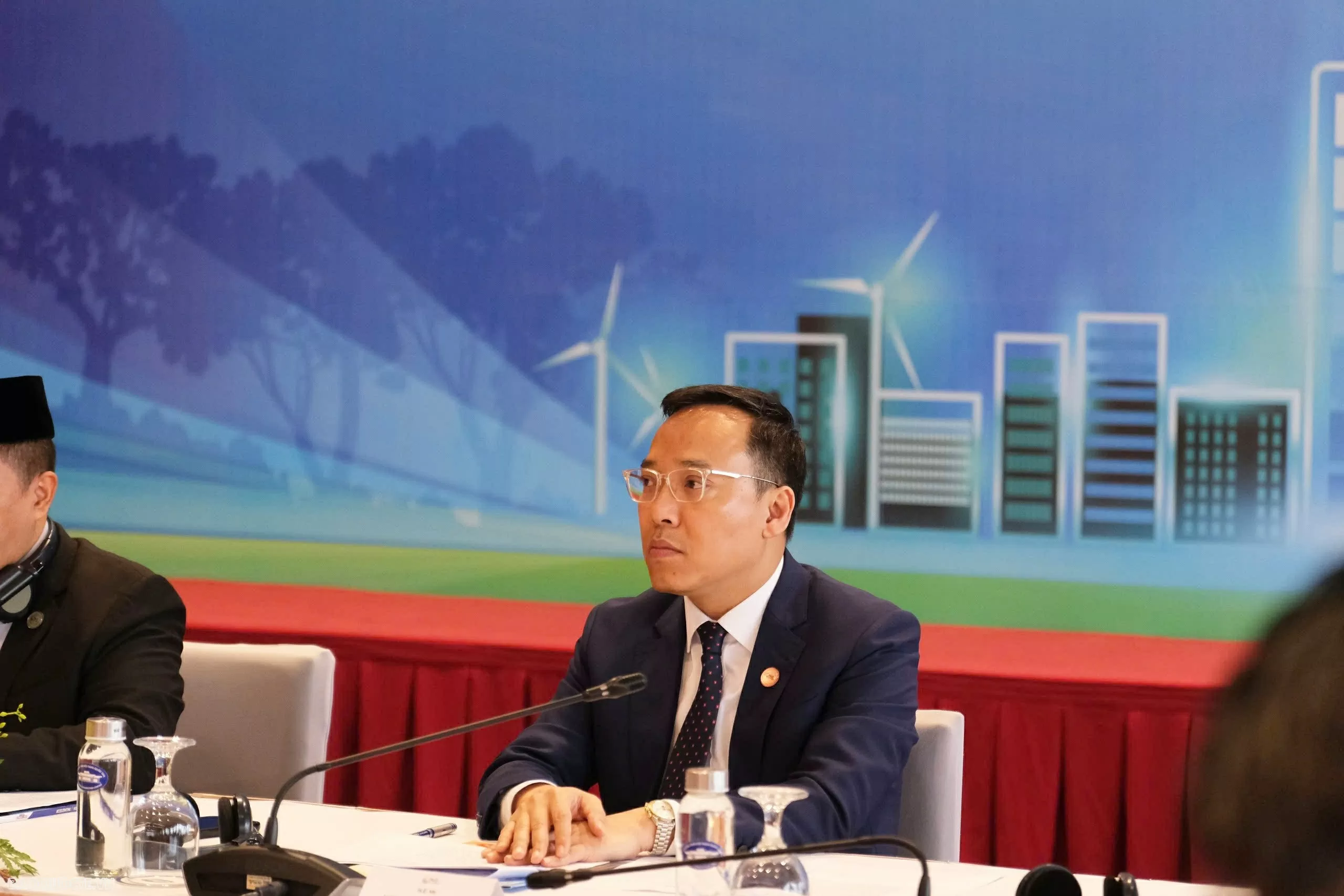 |
| Deputy Minister of Industry and Trade of Vietnam Nguyen Hoang Long emphasized three important orientations and practical lessons from Vietnam's sustainable energy transition journey. (Photo: Bich Quyen) |
Vietnam in general and the Ministry of Industry and Trade in particular have been implementing and will implement many solutions to realize the country's development goals, while meeting the context, requirements and general trends of the world. The Deputy Minister also emphasized 3 important orientations and practical lessons from Vietnam's journey of sustainable energy transition.
The first is innovation. This is the key to overcoming the challenges of sustainable energy transition. We need to invest heavily in research and development to enable breakthrough technologies such as AI, smart grids, battery-based energy storage systems (BESS) and hydrogen energy. These technologies help optimize efficiency and reduce costs.
However, for innovation to truly flourish, strong policy support is needed, including financial incentives and intellectual property protection. Innovation in the energy sector requires close coordination, from policy formulation to mobilizing domestic and foreign resources. People are always the decisive factor in all of these processes.
| Related News |
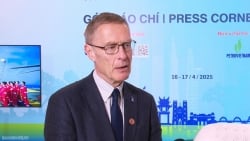 IFAD Vice President: Empowering farmers is the key to unlocking sustainable agriculture IFAD Vice President: Empowering farmers is the key to unlocking sustainable agriculture |
The second is the public-private partnership model and international cooperation . Sustainable energy transition requires cooperation between the government and the private sector. According to Deputy Minister Nguyen Hoang Long, public-private partnership helps share resources, reduce risks and expand solutions. The government guides policies and sets goals, while the private sector provides finance and flexible, creative implementation.
In addition, international cooperation, such as P4G, helps countries, including Vietnam, share experiences and access global green finance. This is clear evidence that only when we combine, mobilize all resources and share risks can we implement large projects, meeting time and efficiency requirements.
Third, it is human-centered . The sustainable energy transition is not just a technological revolution, but also an opportunity to improve the quality of life of millions of people around the world, especially poor and vulnerable communities.
“We understand that sustainable energy transition cannot be achieved without social equity. Inclusive policies, such as providing microfinance for households to invest in renewable energy, are the foundation for everyone to contribute to this journey,” the Deputy Minister emphasized.
In particular, Deputy Minister Nguyen Hoang Long stated that the energy sector transformation process always requires harmony in development, ensuring social issues and environmental protection, towards a green, sustainable future and leaving no one behind.
Indonesia supports renewable energy pioneers
Countries around the world have been taking important steps to tackle climate change with strong commitments towards carbon neutrality, said Indonesian Deputy Minister of National Development Planning Leonardo AA Teguh Sambodo.
For Indonesia and many developing countries, the journey towards carbon neutrality is a complex one, impacted by the dual imperatives of economic development and energy access coupled with the need to use innovative financial solutions.
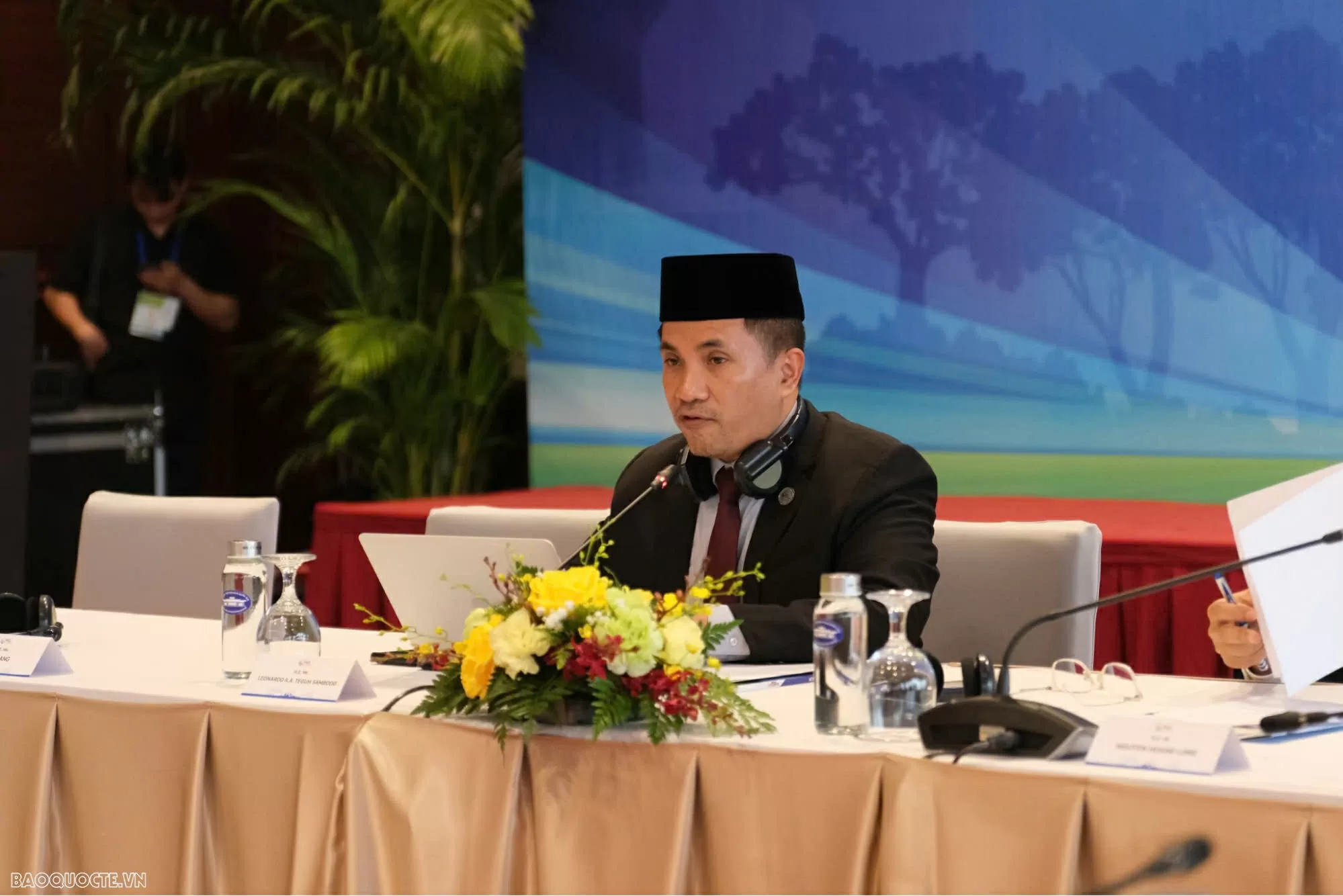 |
| Indonesian Deputy Minister of National Development Planning Leonardo AA Teguh Sambodo affirmed that to move forward, the world must move away from the conventional business growth model and embrace innovation (Photo: Bich Quyen). |
Moving forward, the world must move away from the business-as-usual growth model and embrace innovation. Indonesia is looking to accelerate renewable energy, expand its electricity grid, promote green transport, green jobs, increase the use of bioenergy, and adopt advanced technologies, especially in sectors that are difficult to adapt to.
“We also believe that advanced technology is the foundation of a cleaner, more sustainable energy future. Therefore, we are actively looking for innovative solutions such as smart grids, IoT-based monitoring and digital simulation applications to increase efficiency and sustainability in energy development and use,” said Mr. Sambodo.
According to Mr. Sambodo, the Indonesian government is supporting pioneering companies in exploring renewable energy sources, as well as integrating renewable energy, energy storage systems, power management, ensuring that energy systems are reliable and environmentally sustainable.
Italy wants to become the energy hub of the Mediterranean region
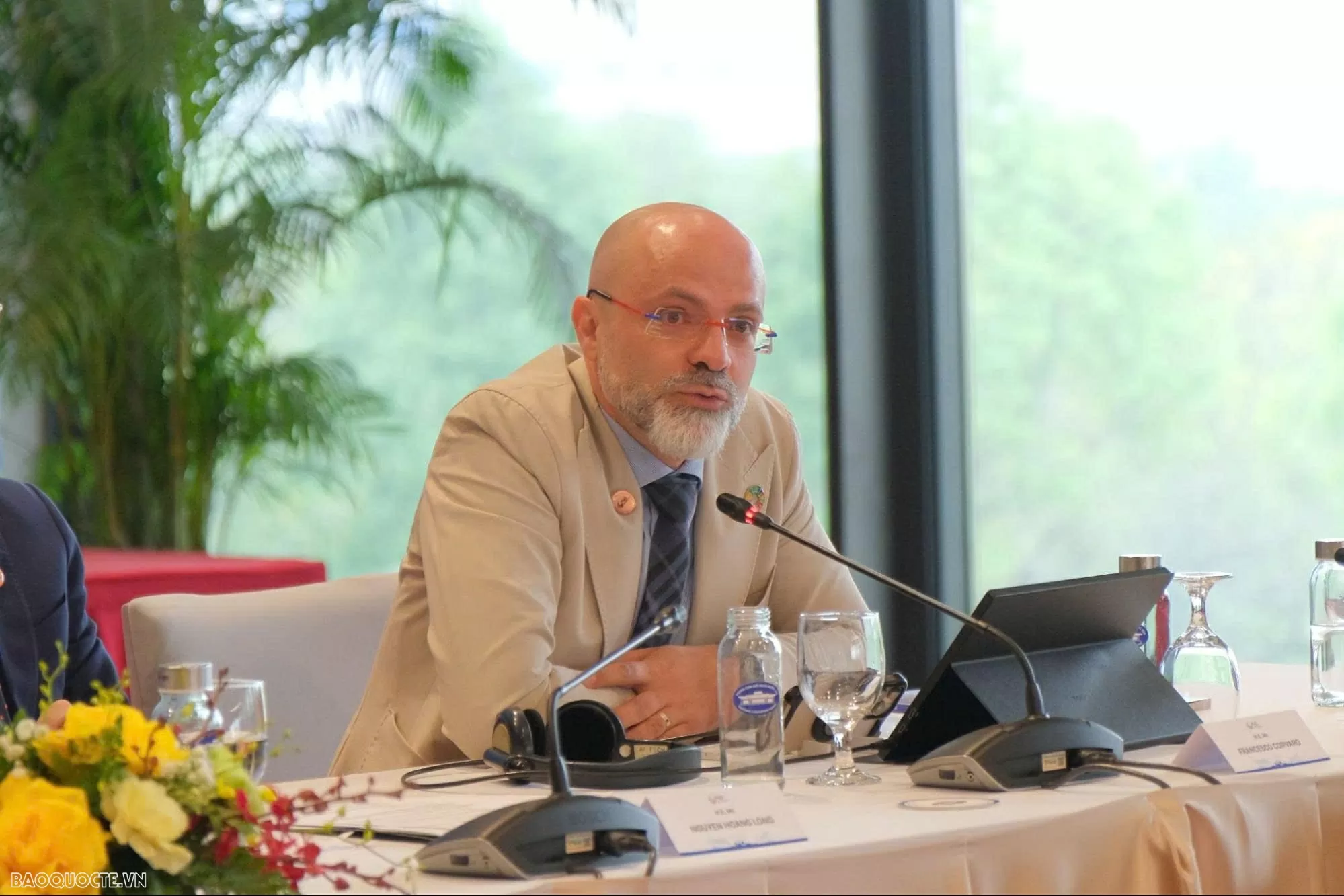 |
| Italy's Special Envoy for Climate Change Francesco Corvaro said that the country is actively innovating its energy system to promote an efficient energy transition (Photo: Bich Quyen) |
In addition, Italy's Special Envoy for Climate Change Francesco Corvaro affirmed that Italy is actively reforming its energy system to support an efficient energy transition. By strengthening its electricity connections with neighboring countries, Italy is creating a stronger, more integrated European grid.
According to Mr. Corvaro, these new connections play an important role in balancing supply and demand in the green energy sector, allowing for better integration of renewable energy sources and ensuring energy security across the region.
In this direction, Italy is positioning itself as an energy hub in the Mediterranean region, actively promoting cooperation, growth and stability for all partners involved.
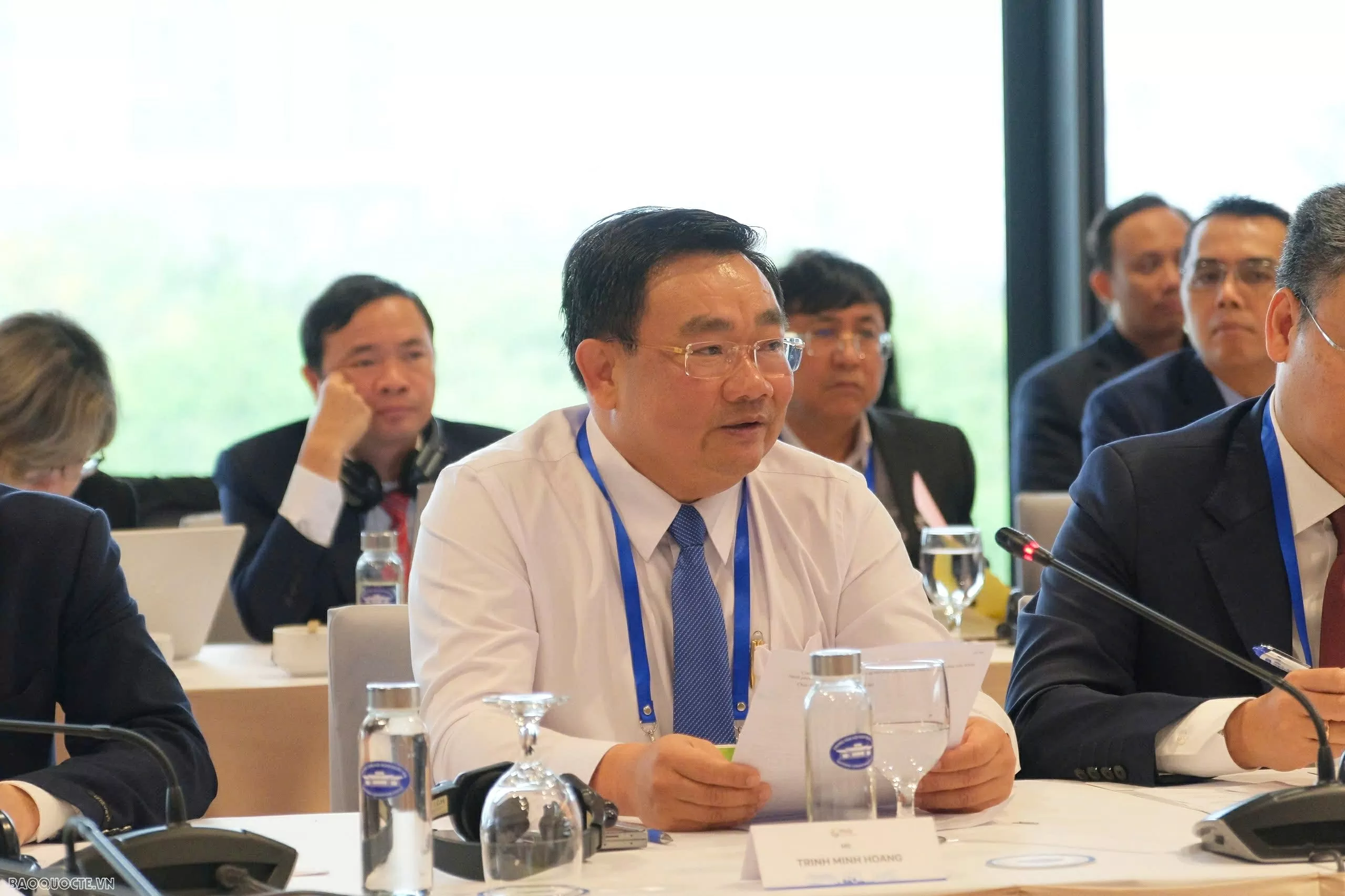 |
| Vice Chairman of Ninh Thuan Provincial People's Committee Trinh Minh Hoang affirmed that renewable energy is a breakthrough field in Ninh Thuan's sustainable energy transformation (Photo: Bich Quyen). |
Ninh Thuan realizes the goal of becoming the country's renewable energy center
Sharing about innovative solutions in energy conversion, Mr. Trinh Minh Hoang, Vice Chairman of Ninh Thuan Provincial People's Committee emphasized that clean energy and renewable energy are key and breakthrough fields that the province will prioritize for development in the coming time.
According to Mr. Trinh Minh Hoang, to promote the process of effective and sustainable energy conversion, Ninh Thuan recommends that the Ministry of Industry and Trade soon advise the Government to issue mechanisms and policies on electricity prices, especially for wind power, pumped storage hydropower, etc. to create conditions for implementing the adjusted Power Plan VIII in a synchronous and effective manner.
In addition, the province also proposed to develop a phased energy transition plan, aiming for zero net emissions by 2050. The solutions highlighted include perfecting financial tools to support clean electricity to compete with coal-fired thermal power, developing the domestic carbon market, and encouraging the energy equipment manufacturing industry to increase the localization rate and increase competitiveness.
“With its available potential for sunshine and wind and strong political determination, Ninh Thuan is gradually realizing its goal of becoming the country’s renewable energy center,” Mr. Hoang affirmed.
The energy transition is both a responsibility and an opportunity for innovation
At the discussion session, representatives of many businesses also shared their green development roadmap, contributing to the sustainable development future of Vietnam and the world.
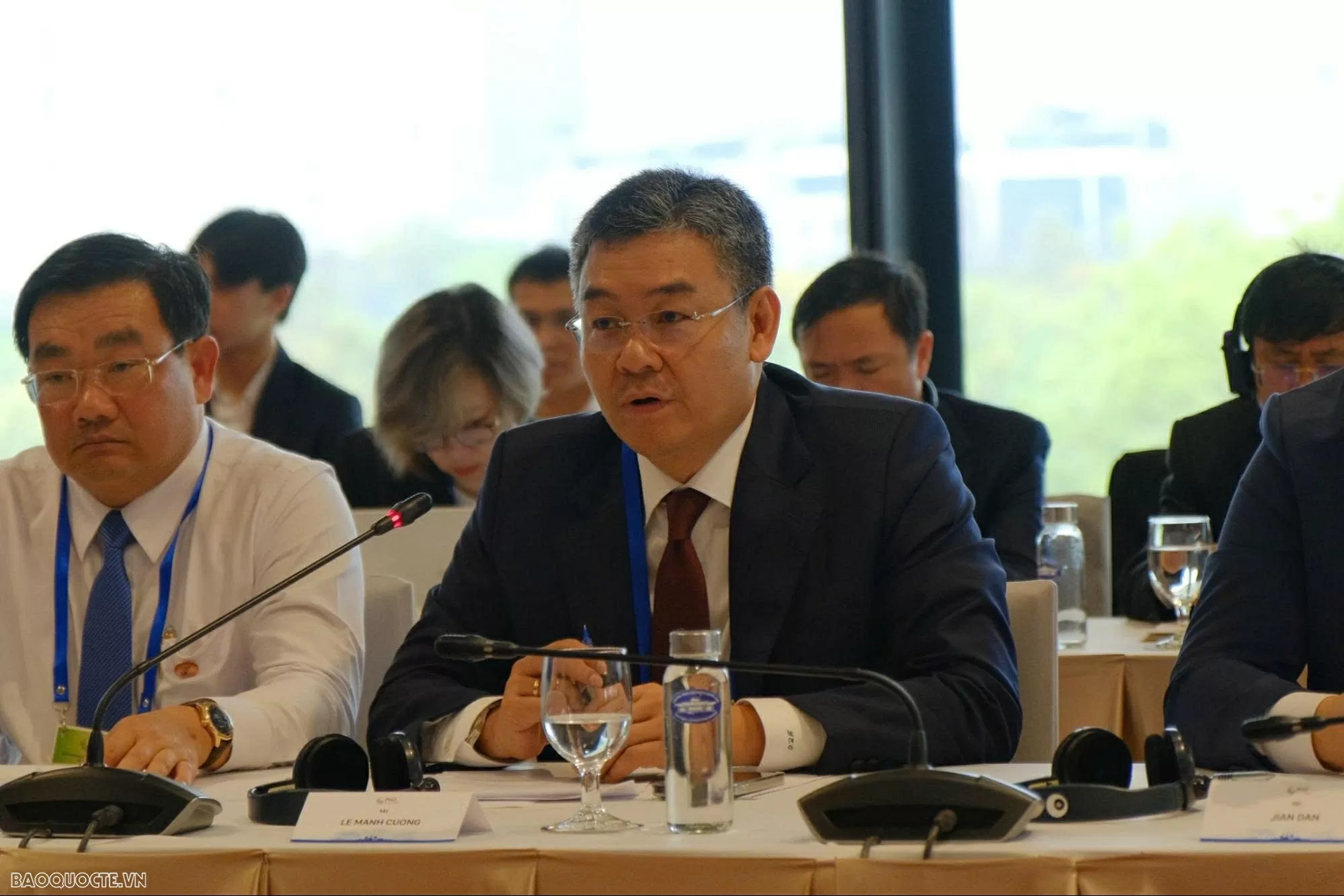 |
| Mr. Le Manh Cuong believes that energy transition is both a responsibility and an opportunity to innovate, improve efficiency and fulfill environmental commitments. (Photo: Bich Quyen) |
On the side of the Vietnam National Energy Industry Group (PVN), Deputy General Director Le Manh Cuong said that as a key enterprise in the national energy sector, PVN is deeply aware that energy transition is both a responsibility and an opportunity to innovate, improve efficiency and fulfill environmental commitments.
In recent years, the Group has proactively implemented many creative solutions, specifically: Innovating and applying new technologies to increase efficiency and sustainability in energy development and use, promoting circular economic models such as reusing associated gas, recovering waste heat, treating and reusing production water.
In addition, Mr. Le Manh Cuong shared that piloting research projects on offshore wind power, green hydrogen, green ammonia and carbon capture, utilization and storage (CCUS) is an important preparation for PVN's long-term emission reduction strategy. In the field of exploration and exploitation, advanced technologies have been applied to optimize operations, improve safety and reduce emissions.
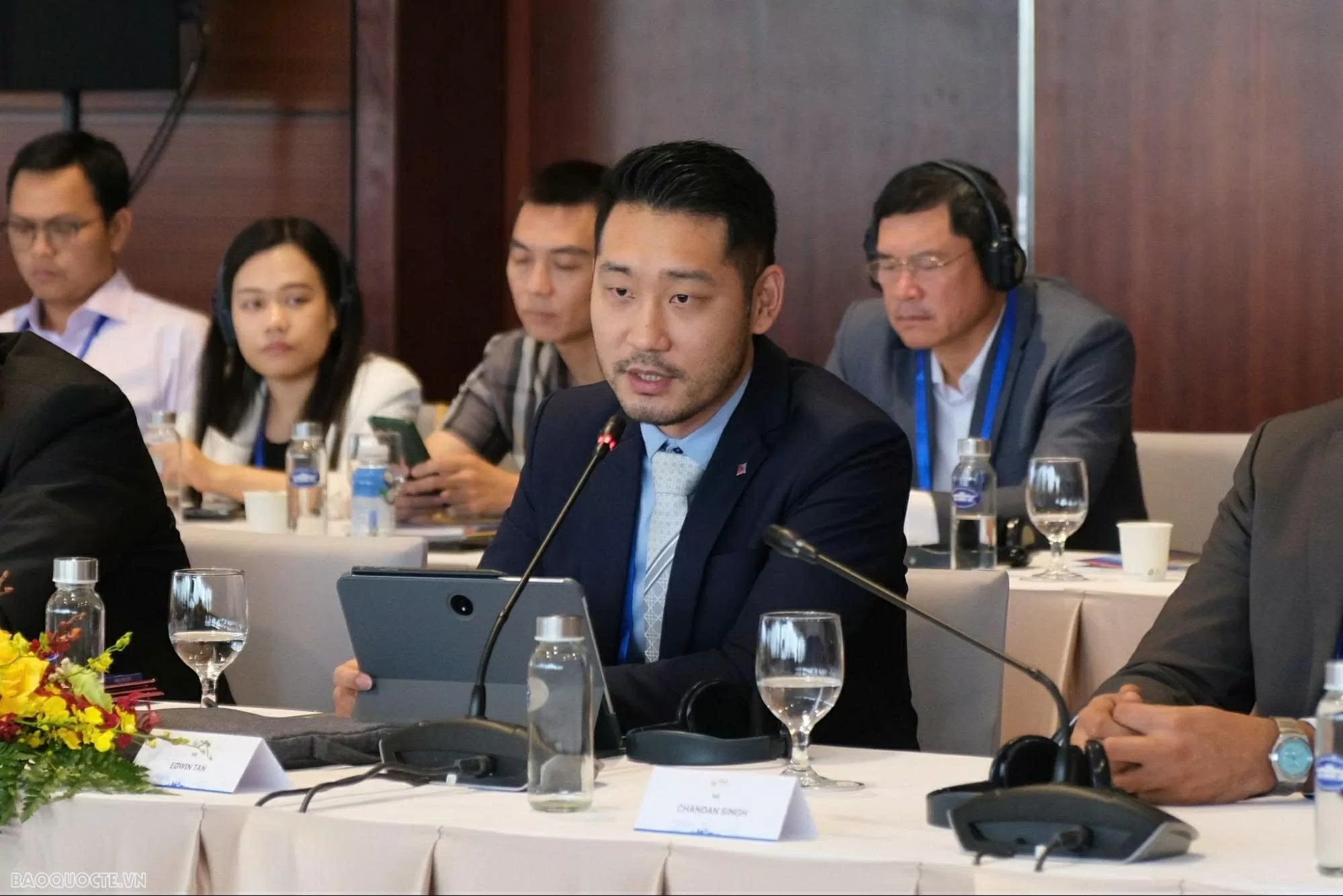 |
| Mr. Edwin Tan pointed out that Frasers Vietnam is committed to carbon neutrality and creating sustainable value for people, planet and society. (Photo: Bich Quyen) |
For his part, Edwin Tan, Deputy General Director of Frasers Property Vietnam, affirmed that real estate contributes nearly 40% of global carbon emissions and accounts for more than 70% of a city’s emissions. Therefore, sustainability is always a focus area of Frasers Property.
Mr. Edwin Tan shared that Frasers Vietnam has been pursuing a sustainable journey since 2006 and takes this motto very seriously. “Throughout the real estate lifecycle, we must lead and act as a responsible investor, developer and manager and commit to achieving carbon neutrality for the built environment, creating long-term value for people, planet and society,” Mr. Tan expressed.
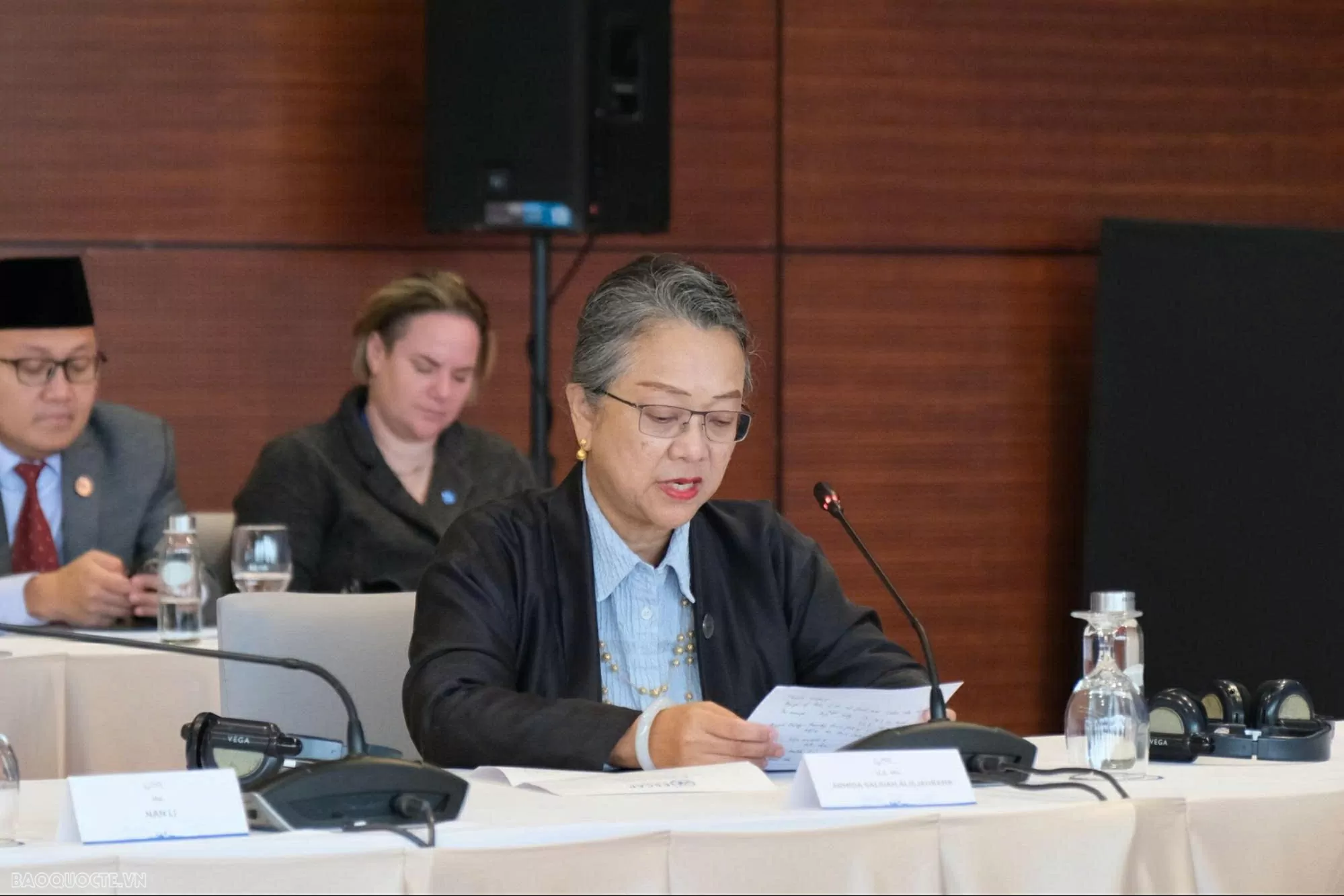 |
| UN Under-Secretary-General and Executive Secretary of the UN Economic and Social Commission for Asia and the Pacific Armida Salsiah Alisjahbana stated that to promote a profound energy transition, it is necessary to scale up diverse and context-appropriate technological solutions. (Photo: Bich Quyen) |
During the discussion, Ms. Armida Salsiah Alisjahbana, Under-Secretary-General of the United Nations and Executive Secretary of the United Nations Economic and Social Commission for Asia and the Pacific (ESCAP), emphasized that to promote a profound energy transition, it is necessary to scale up diverse and context-appropriate technological solutions.
In addition, she also affirmed that some new technology fields such as ocean energy, circular economy for renewable energy materials, community energy trading platforms, or smart cooling technology are expected to contribute to accelerating the energy transition towards a more sustainable and comprehensive direction.
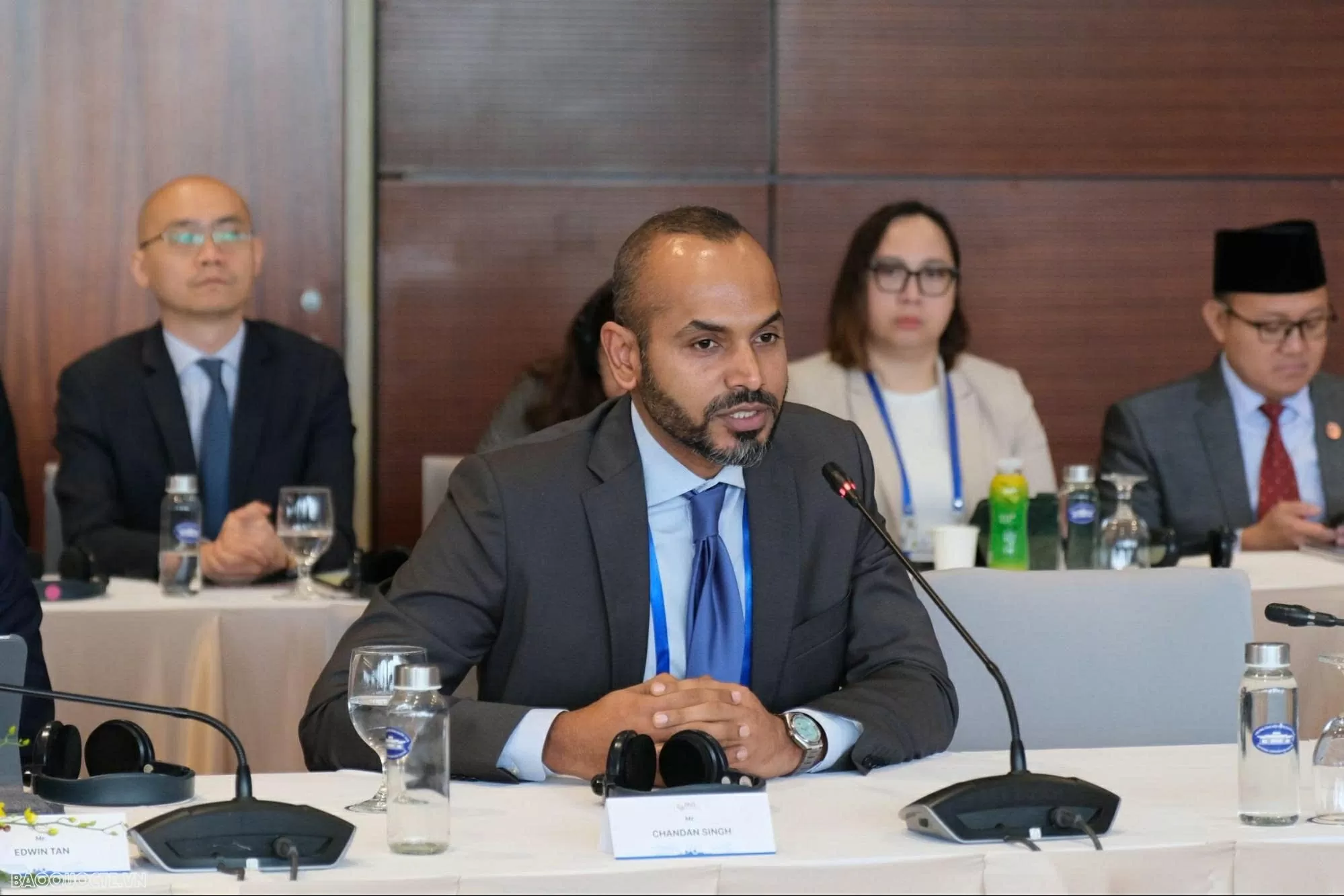 |
| Mr. Chandan Singh, Country Managing Director, Hitachi Energy Vietnam, said that the Energy Transition Roadmap needs to be reviewed and revised periodically based on continuous monitoring and progress assessment . (Photo: Bich Quyen) |
Sharing new technology solutions being applied to improve efficiency and sustainability in energy development and use, Mr. Chandan Singh, Country Managing Director, Hitachi Energy Vietnam, shared that grid interconnection allows energy exchange, helping to balance supply and demand over larger areas, while optimizing the use of renewable energy.
Additionally, energy storage plays a vital role in maintaining grid stability and ensuring reliable energy supply. Furthermore, smart grid infrastructure, enabled by the latest software and AI technologies, helps to extend asset lifecycles, improve energy management, and provide accurate load forecasting.
According to Mr. Chandan Singh, in the process of developing and implementing the sustainable energy transition roadmap, electrification remains central to achieving these goals. The energy transition roadmap needs to be reviewed and revised periodically based on continuous monitoring and assessment of progress. At the same time, ensuring transparency and investing in capacity building will facilitate the adoption of new technologies, helping us stay at the forefront of the energy transition.
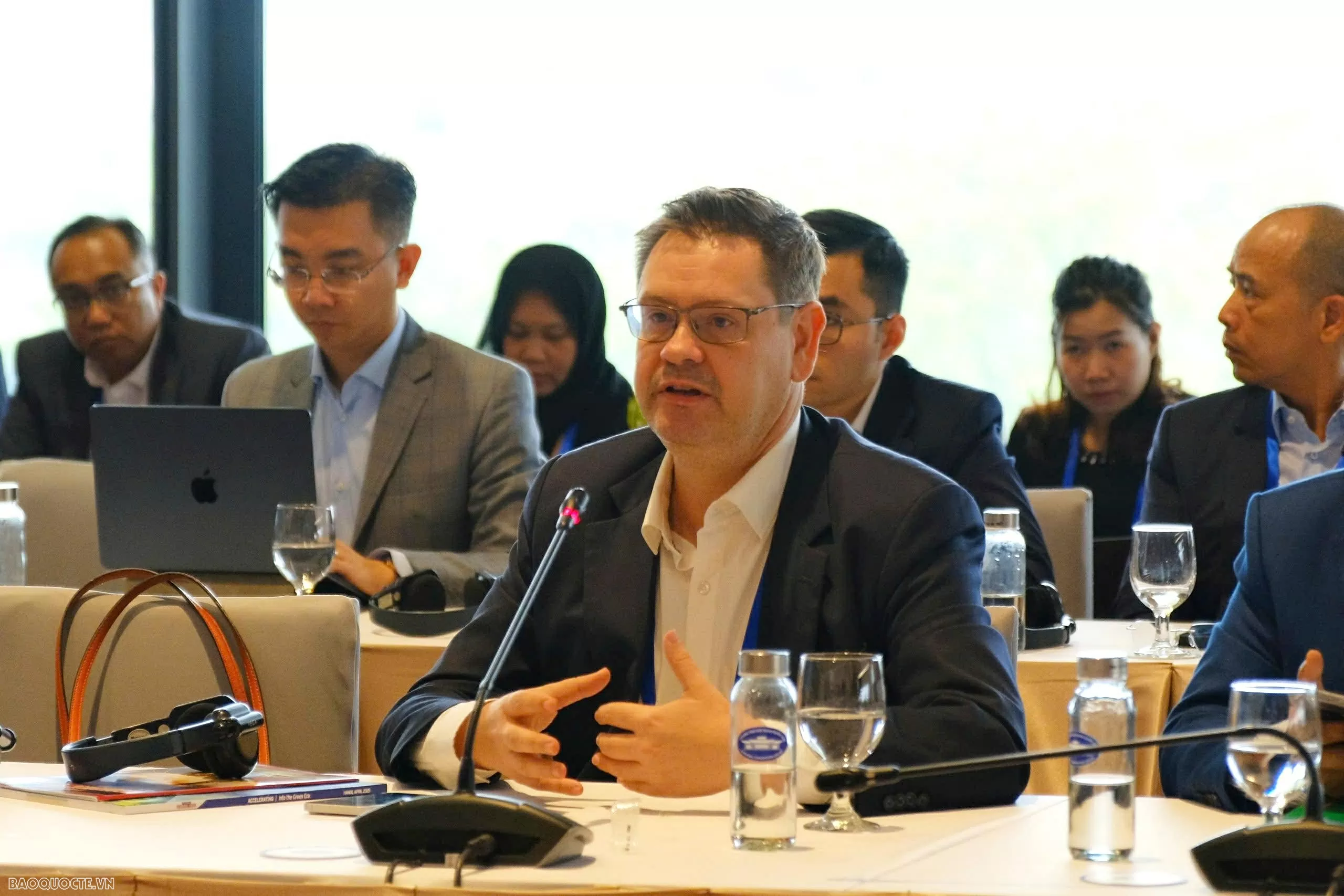 |
| Mr. Andrew Fairthorne, General Director of Stride Company, introduces the new project in Vietnam. (Photo: Bich Quyen) |
Meanwhile, Stride General Director Andrew Fairthorne said that Stride has developed an innovative method in Vietnam, allowing households, small businesses, and farmers to access solar energy at low initial costs and to own a solar energy system in installments.
Mr. Fairthorne affirmed that the savings from using solar energy are enough to pay for the initial investment. This is a very innovative method. In addition to the profits for businesses, people in Vietnam can access solar energy and reduce electricity costs, and reduce the burden on the environment.
In addition, Mr. Fairthorne also said that Stride is implementing a solar energy project with the goal of at least 50% of households using this renewable energy source. That will not only help reduce electricity costs but also raise people's awareness of contributing to the fight against climate change and improving the quality of life.
Vietnam will host the fourth Partnership for Green Growth and the Global Goals (P4G) 2025 Summit from April 14-17. This is a multilateral cooperation mechanism initiated by Denmark in 2017 and has the participation of 8 other member countries: Vietnam, Korea, Ethiopia, Kenya, Colombia, the Netherlands, Indonesia, South Africa and 5 partner organizations: World Resources Institute (WRI), Global Green Growth Institute (GGGI), C40 network (C40 cities), World Economic Forum (WEF) and International Finance Corporation (IFC). P4G has gone through three Summits hosted by Denmark, South Korea and Colombia, aiming to promote public-private partnerships and create a coalition of political leaders to implement the Paris Agreement on climate change and the 2030 sustainable development goals. Hosting this year's Summit is considered an opportunity for Vietnam in general and Hanoi in particular to promote green tourism, strengthen relations with partners, mobilize resources for socio-economic development, respond to climate change and sustainable development of the country. |
Source: https://baoquocte.vn/viet-nam-chung-tay-cu-ng-cong-dong-ng-quoc-te-tim-giai-phap-doi-moi-sang-tao-huong-toi-chuyen-doi-nang-luong-hieu-qua-ben-vung-311412.html


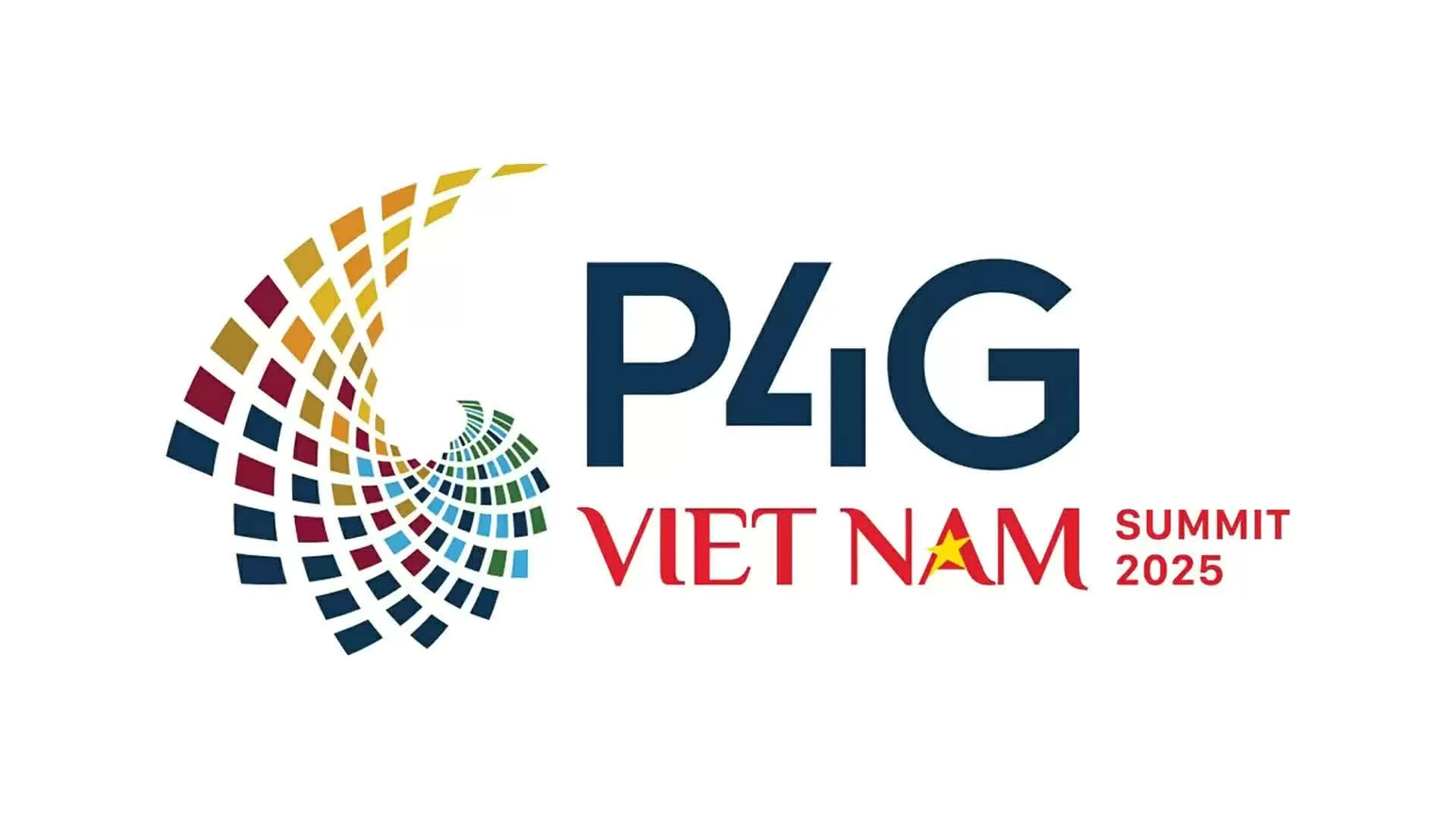
![[Photo] Attractive extracurricular lessons through interactive exhibition at Nhan Dan Newspaper](https://vstatic.vietnam.vn/vietnam/resource/IMAGE/2025/4/26/1f307025e1c64a6d8c75cdf07d0758ce)
![[Photo] President Luong Cuong meets with Lao Prime Minister Sonexay Siphandone](https://vstatic.vietnam.vn/vietnam/resource/IMAGE/2025/4/25/3d70fe28a71c4031b03cd141cb1ed3b1)

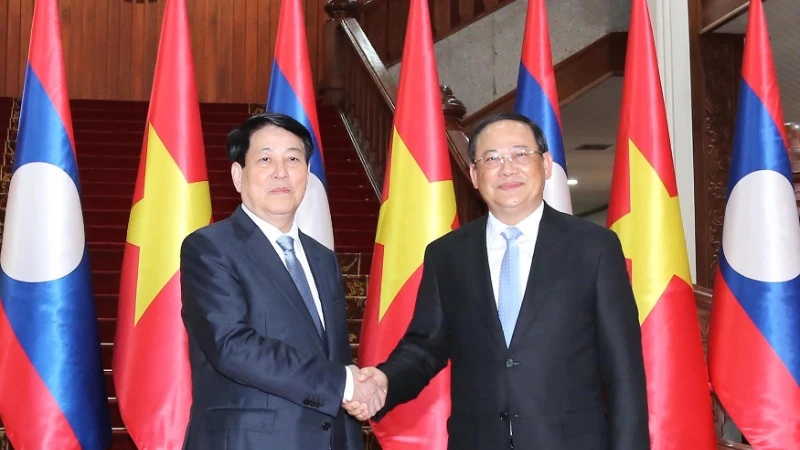


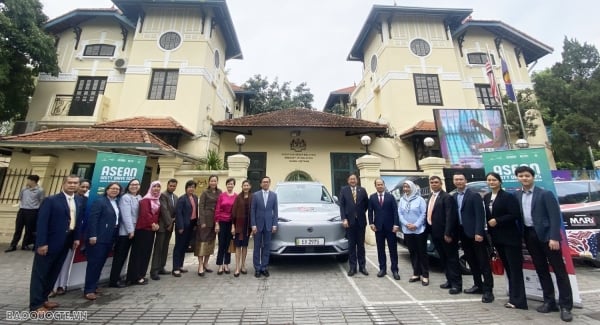
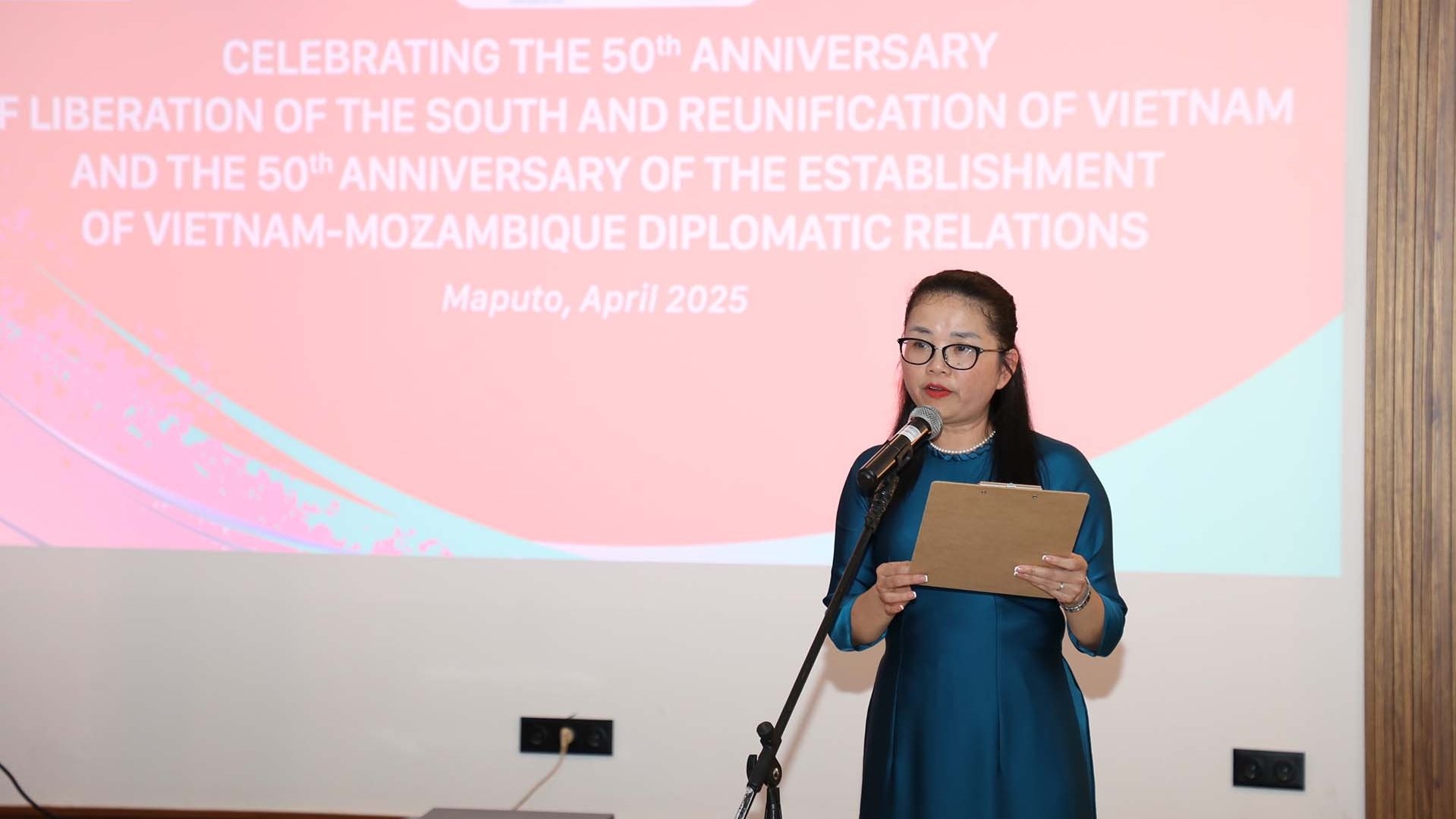
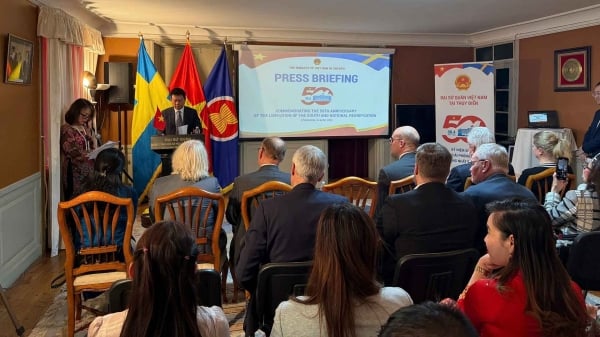
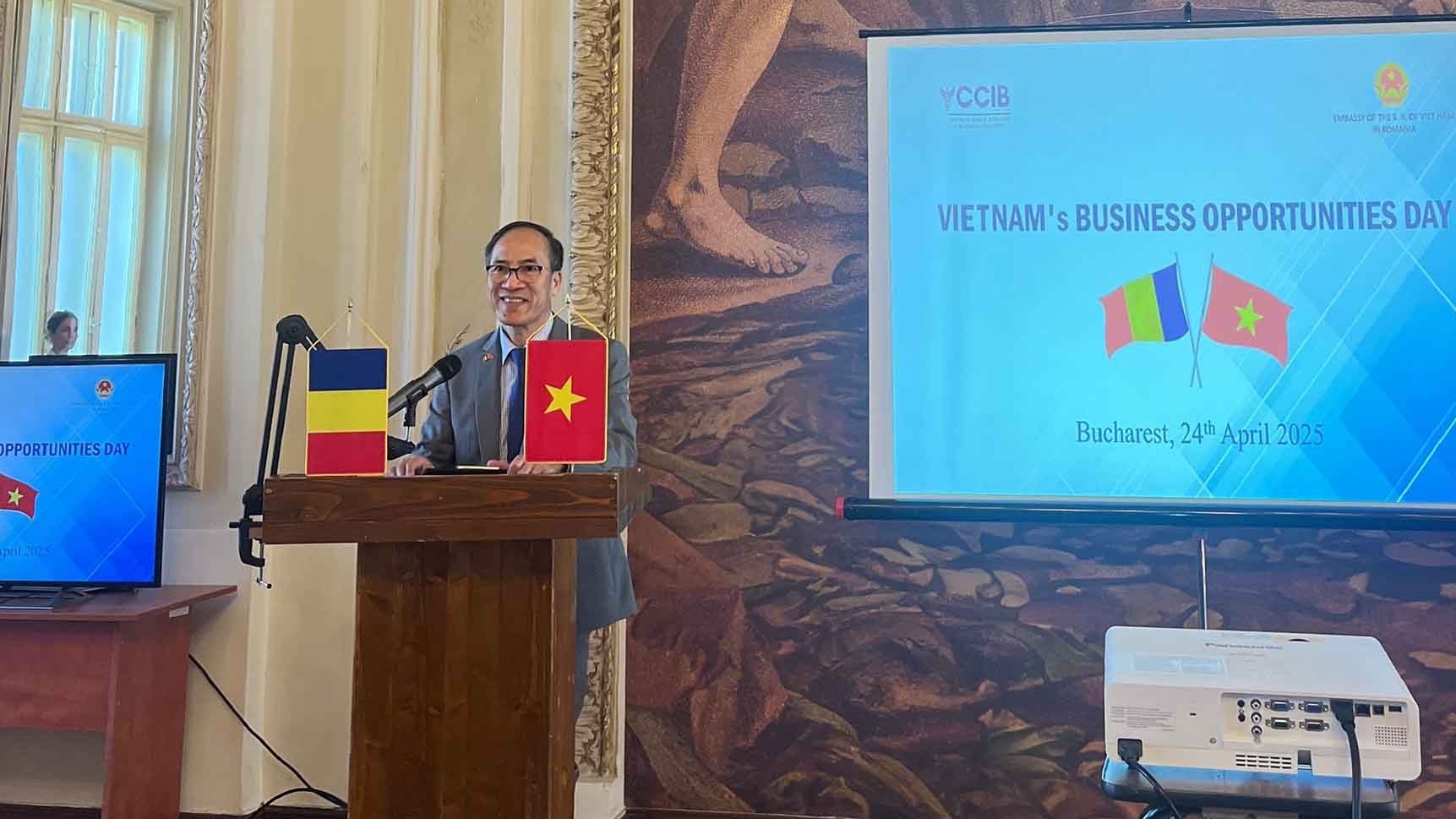
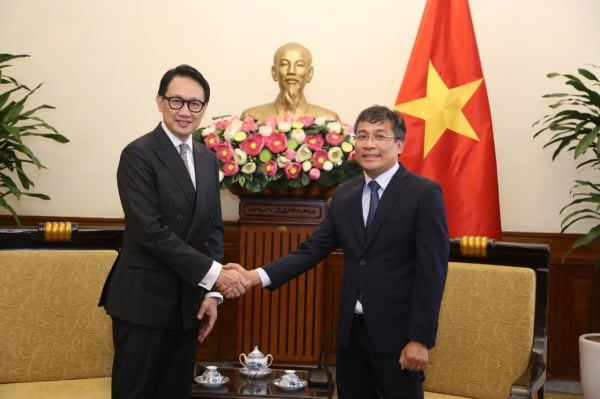
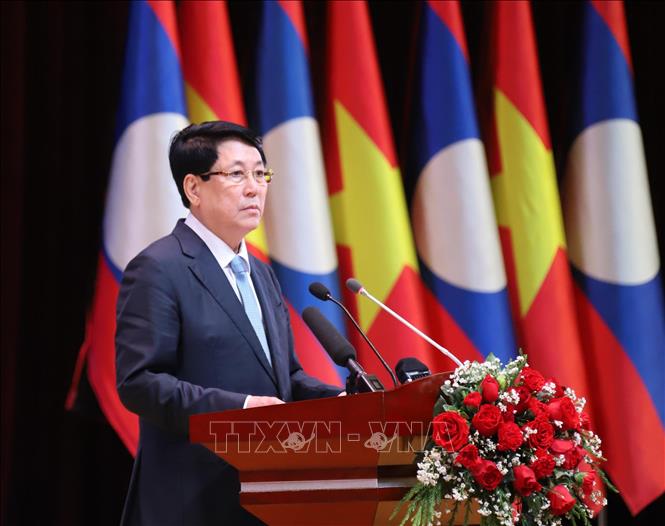
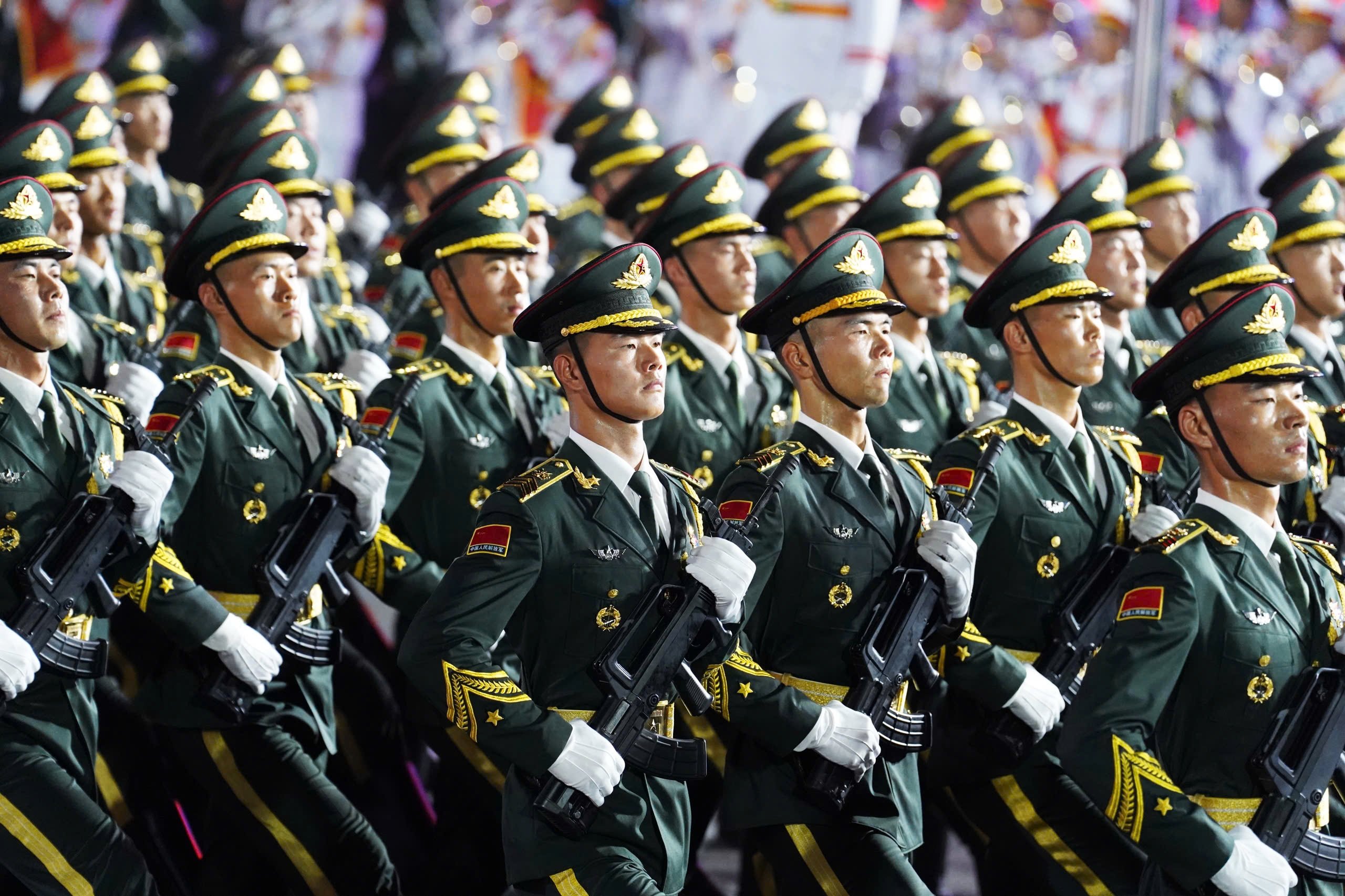
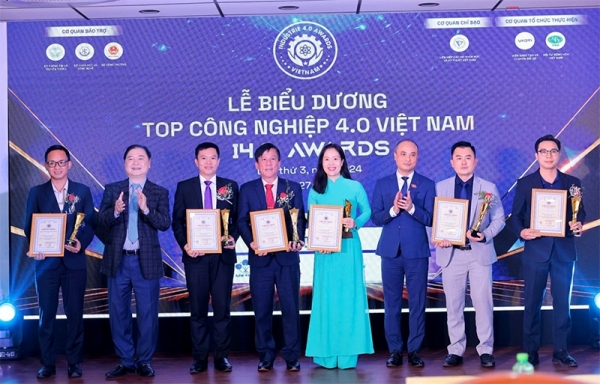


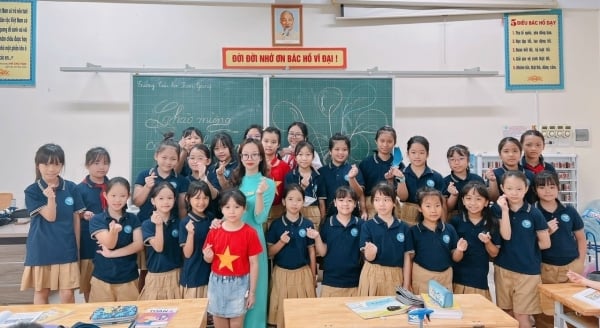


![[Photo] Liberation of Truong Sa archipelago - A strategic feat in liberating the South and unifying the country](https://vstatic.vietnam.vn/vietnam/resource/IMAGE/2025/4/25/d5d3f0607a6a4156807161f0f7f92362)
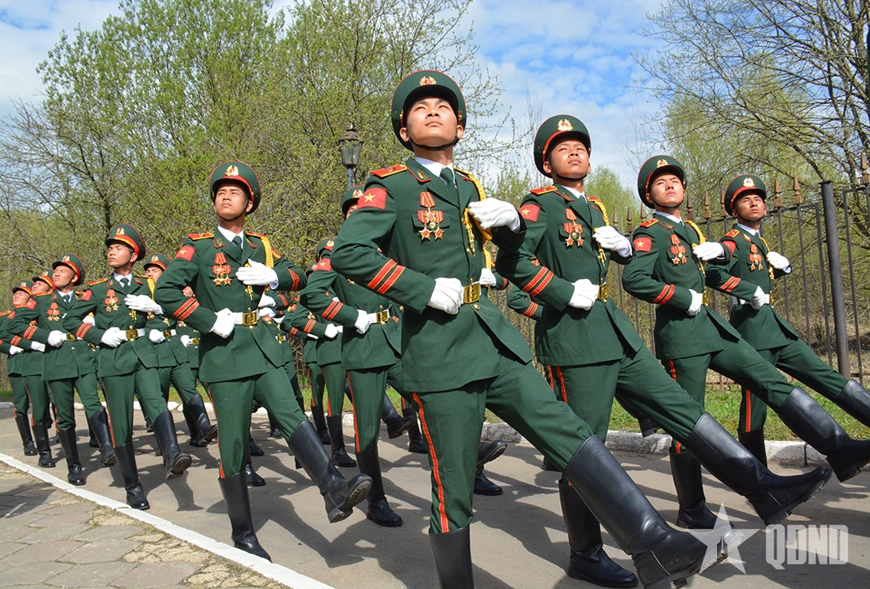
![[Photo] Ho Chi Minh City welcomes a sudden increase in tourists](https://vstatic.vietnam.vn/vietnam/resource/IMAGE/2025/4/25/dd8c289579e64fccb12c1a50b1f59971)


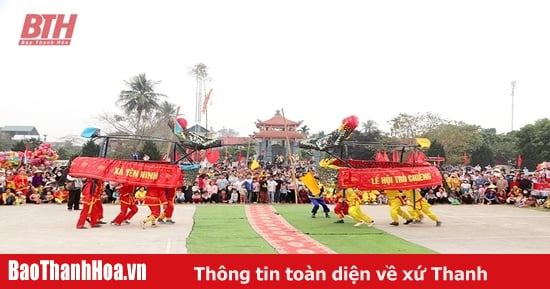





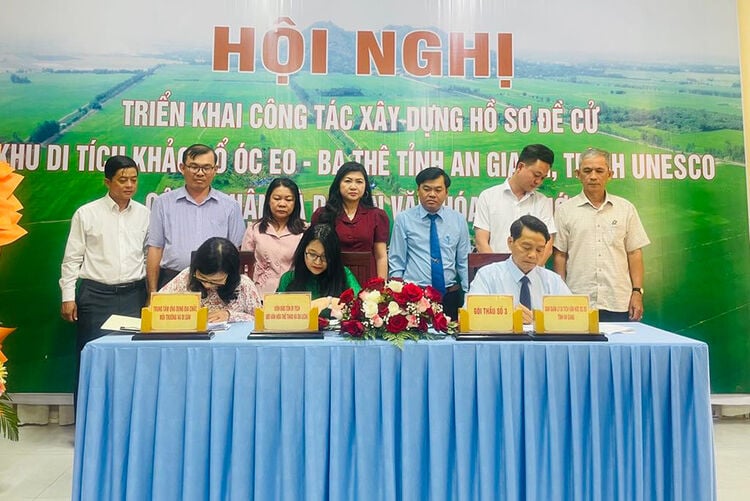

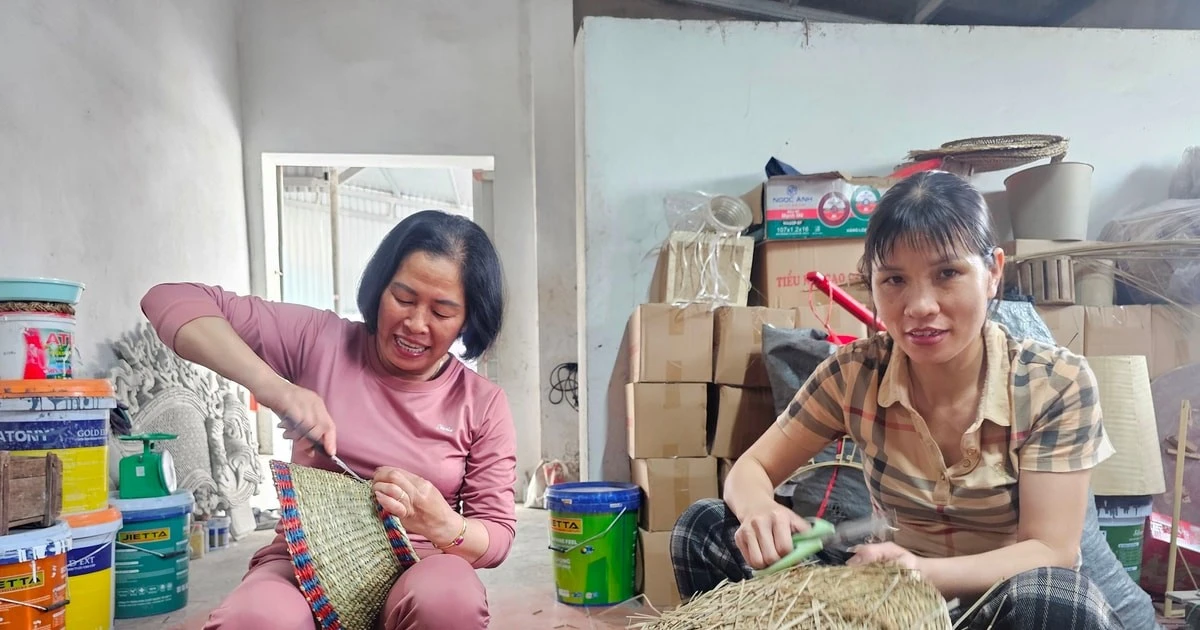





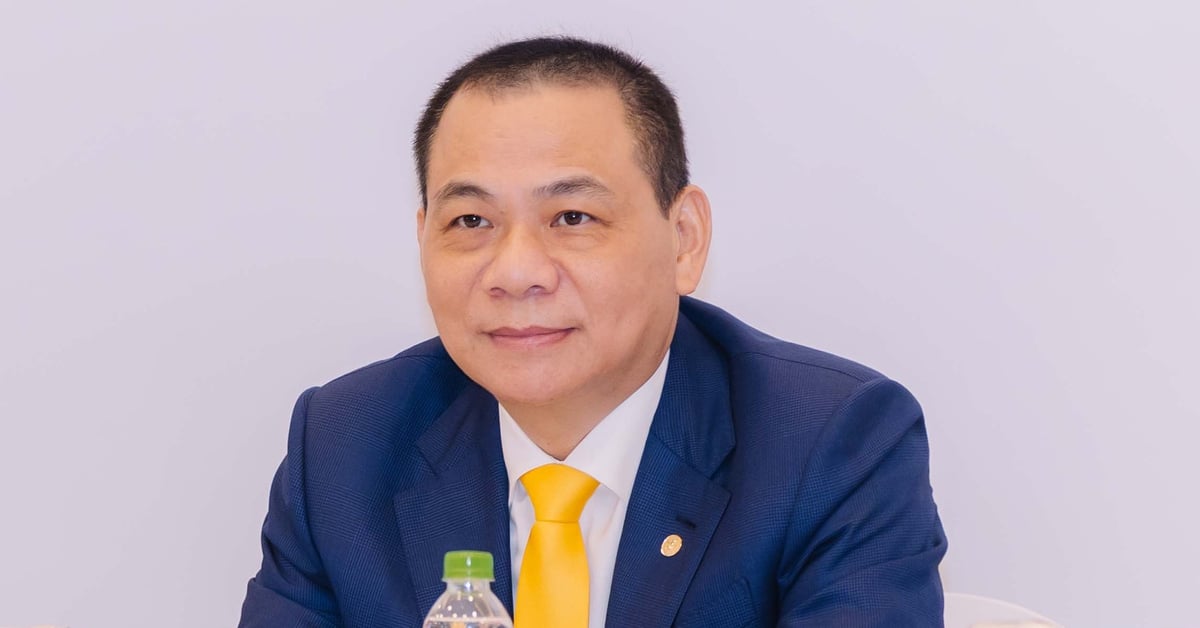



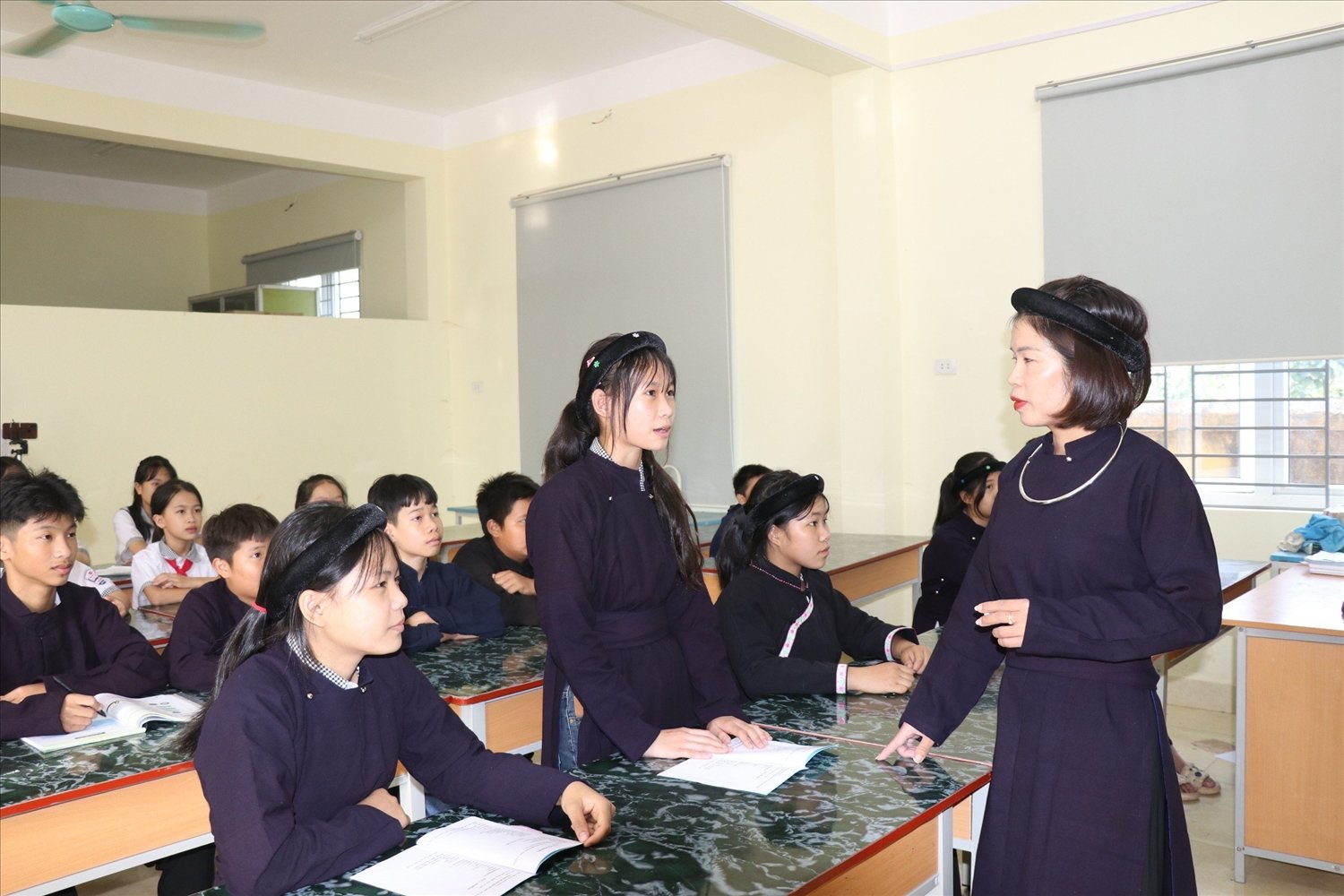





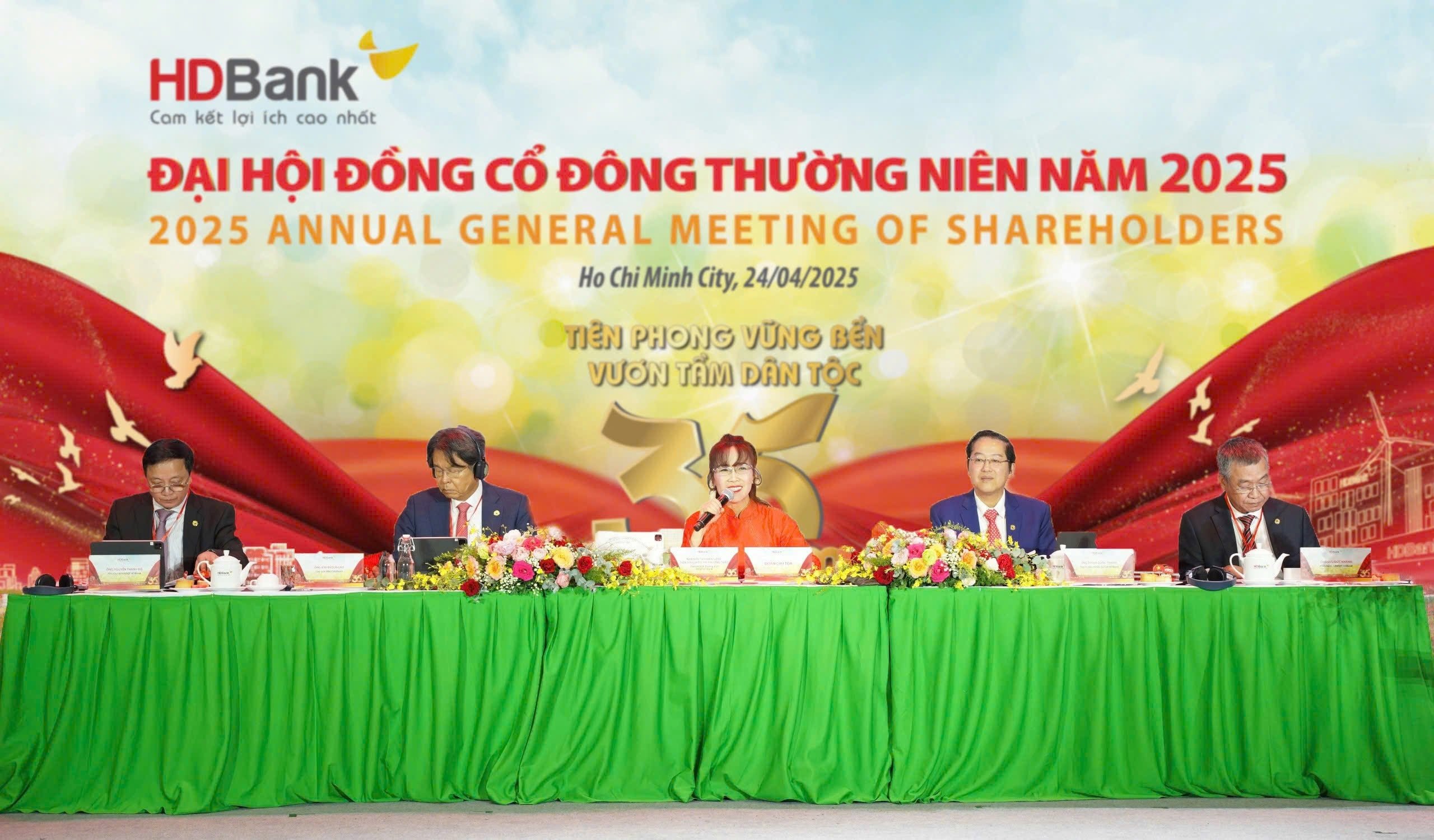

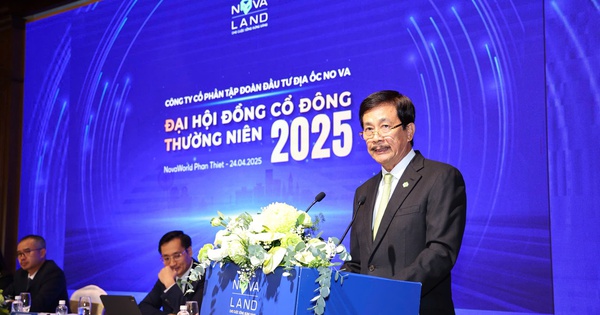

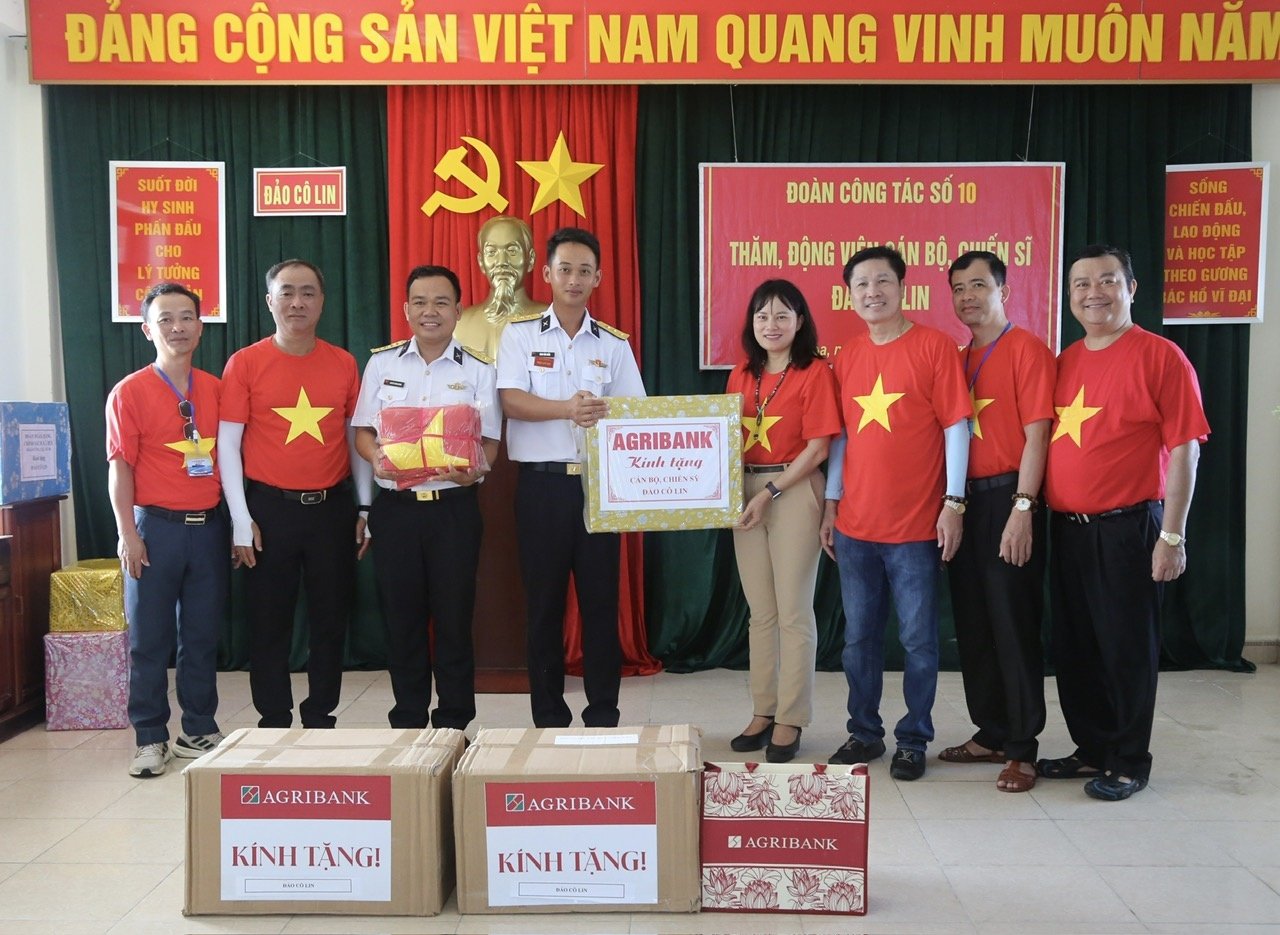
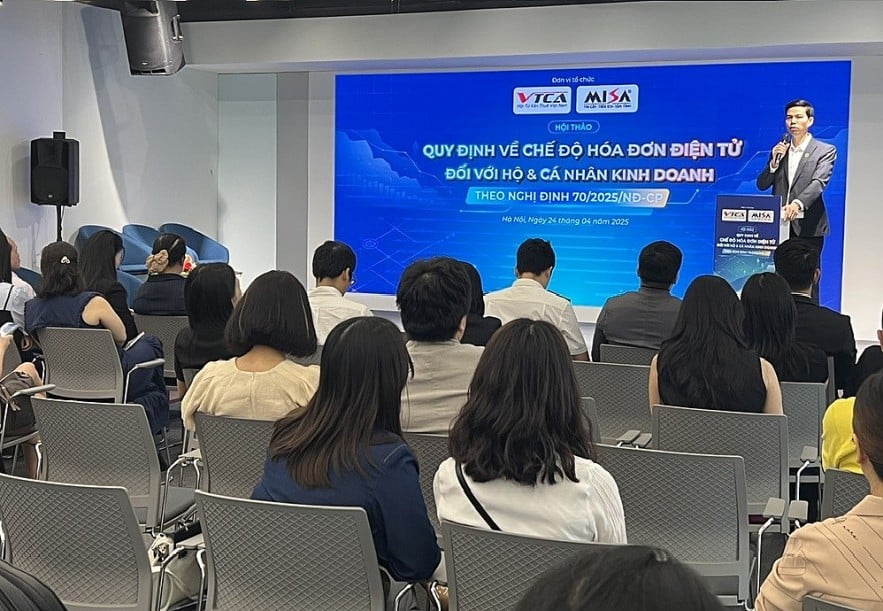



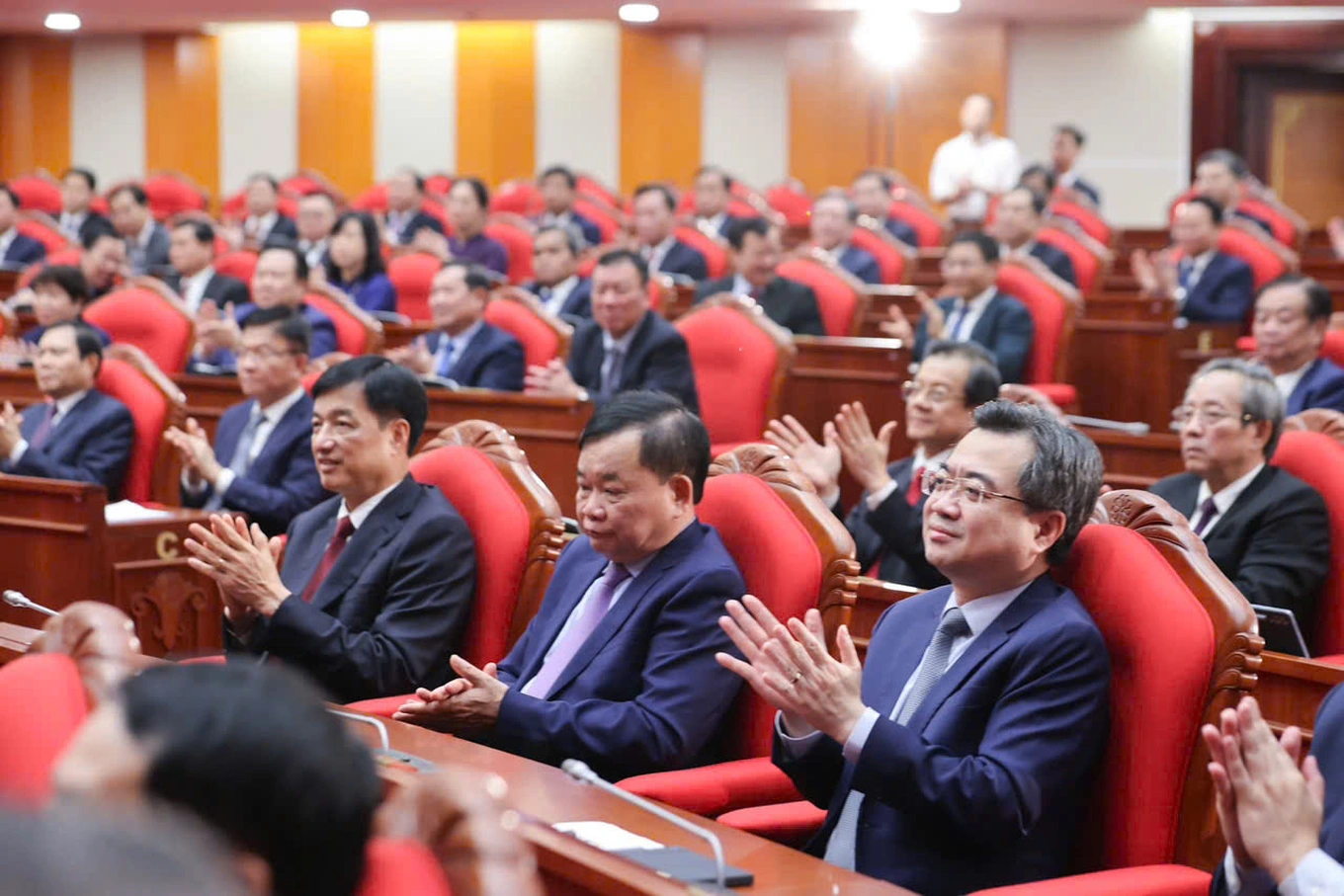
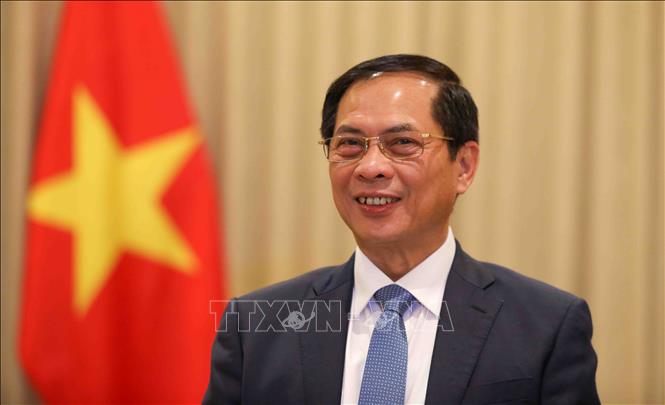

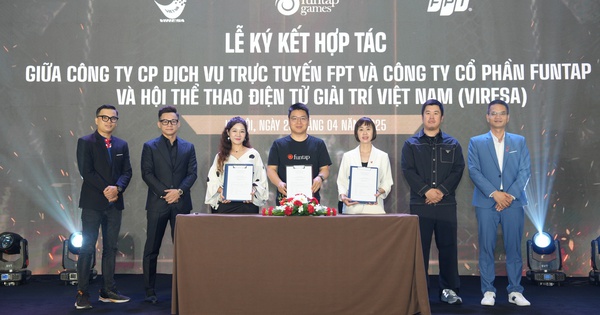

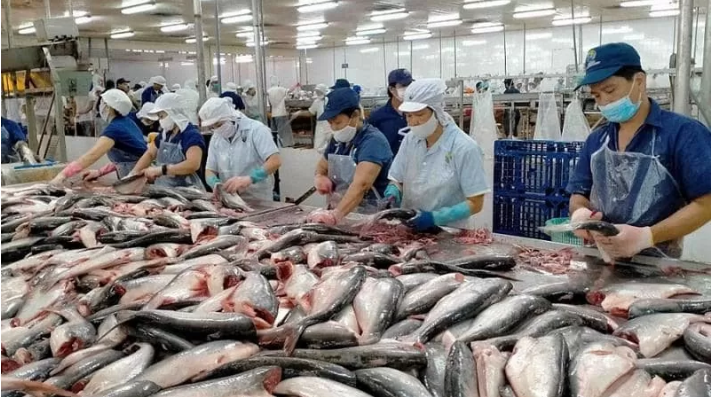


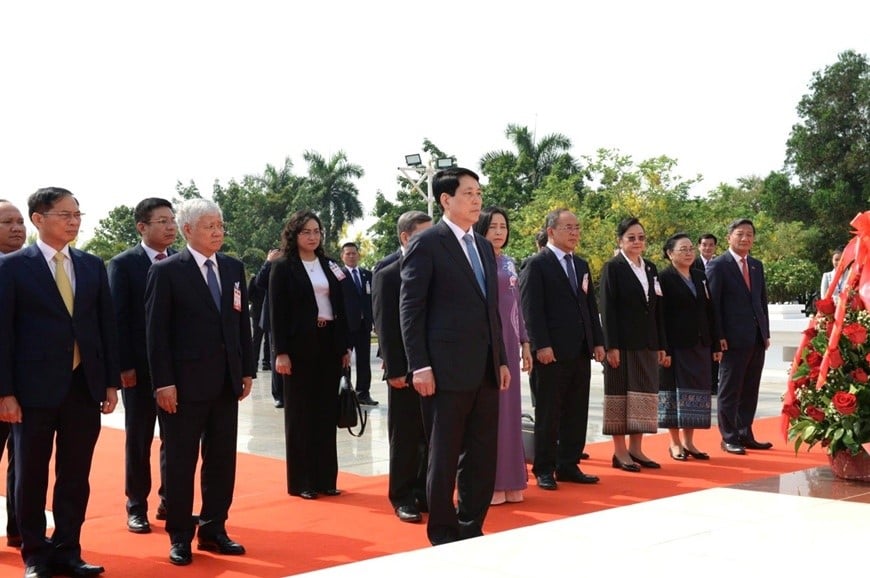
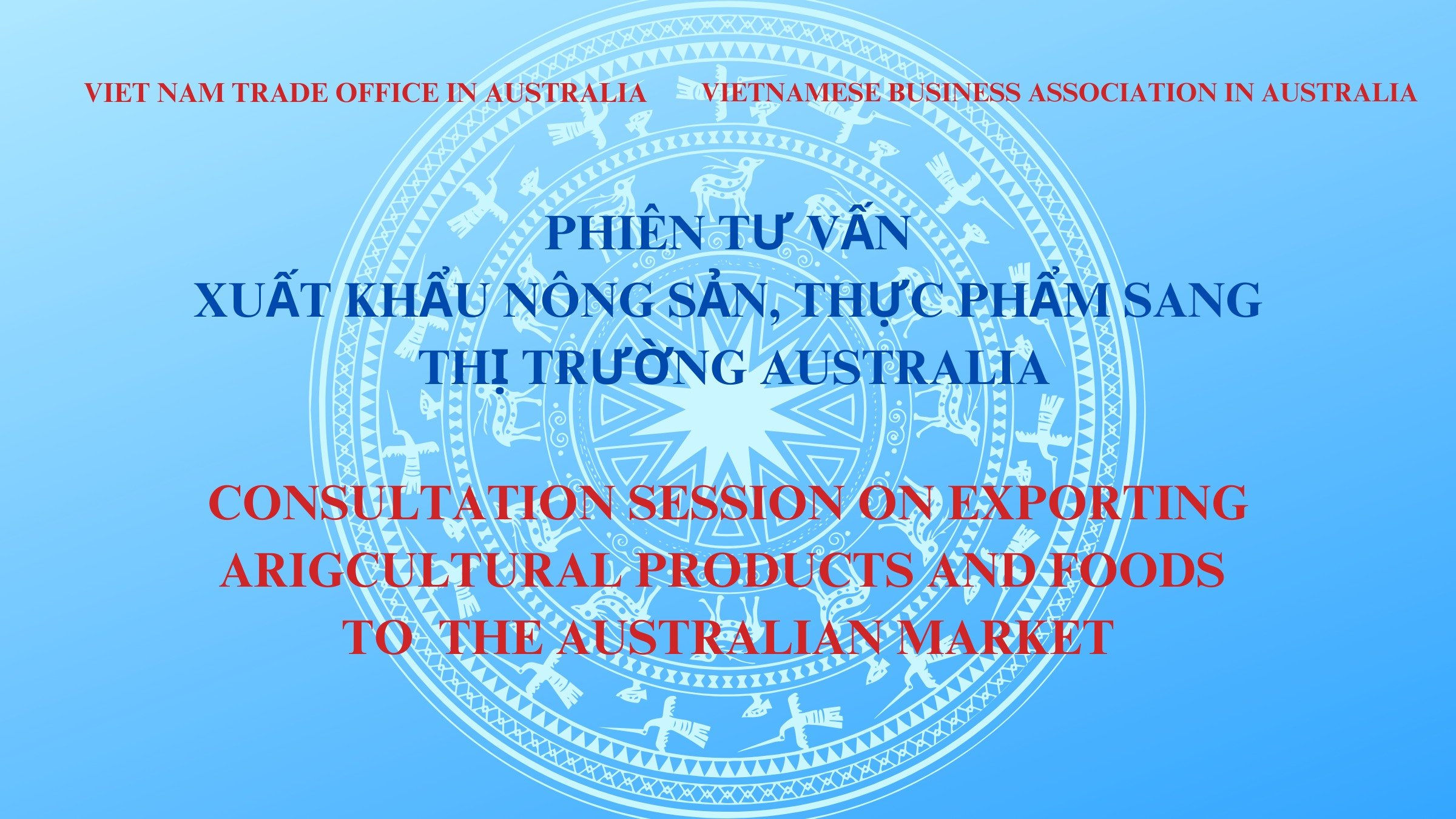



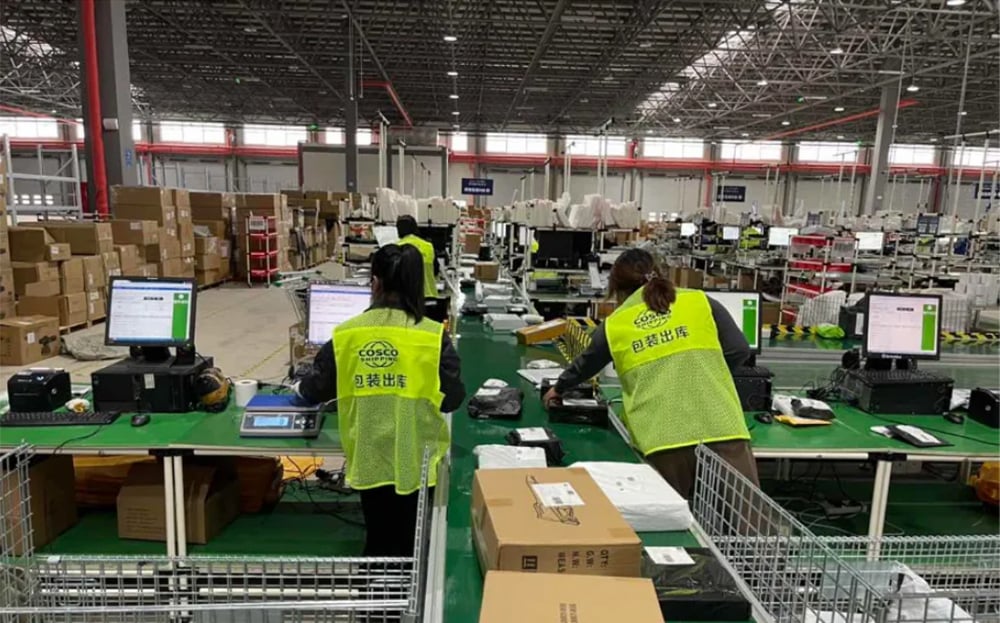
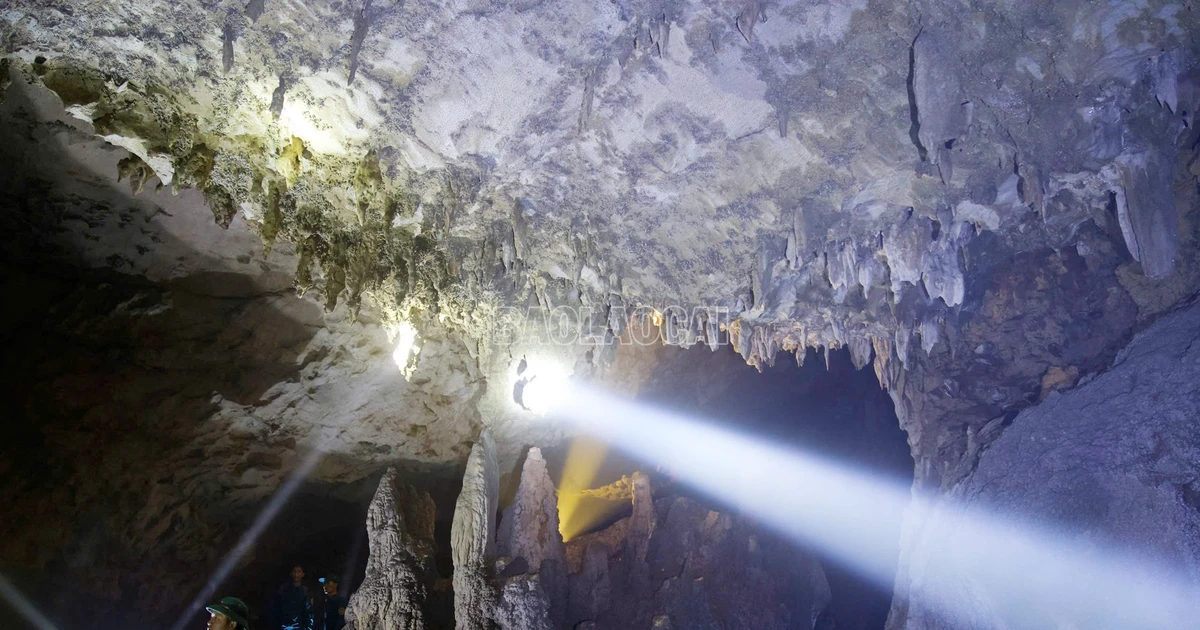



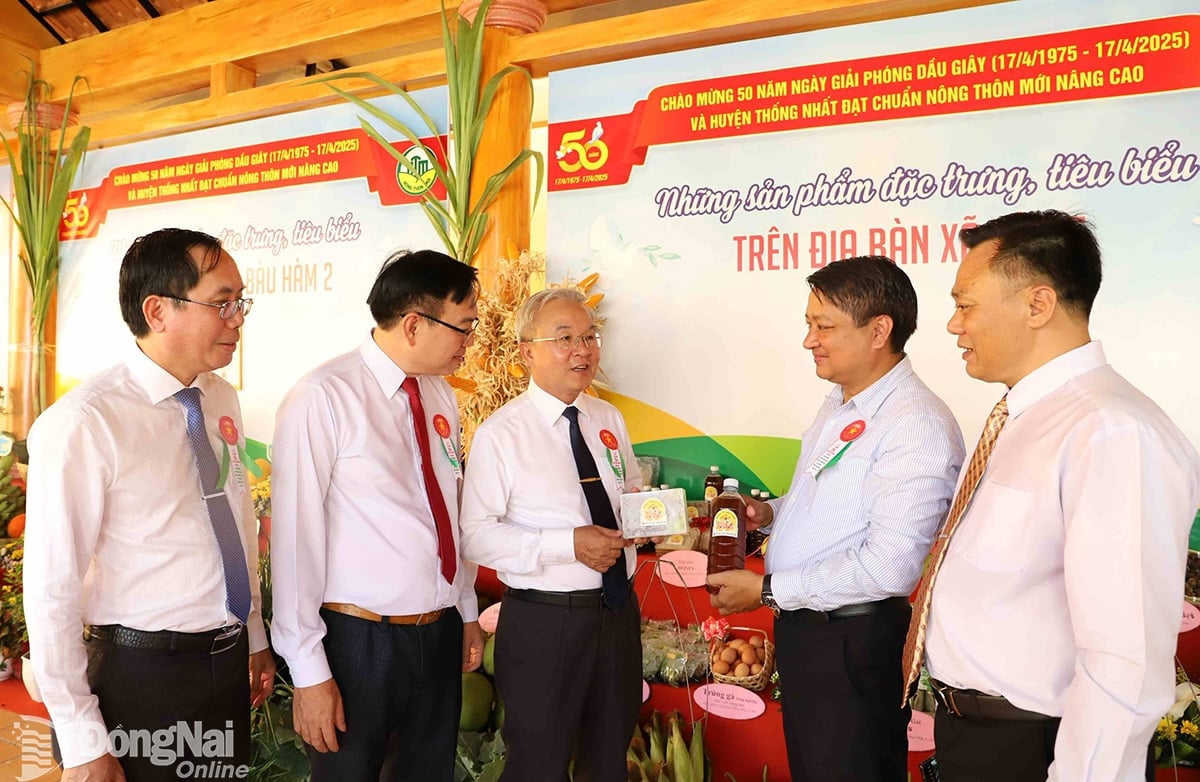


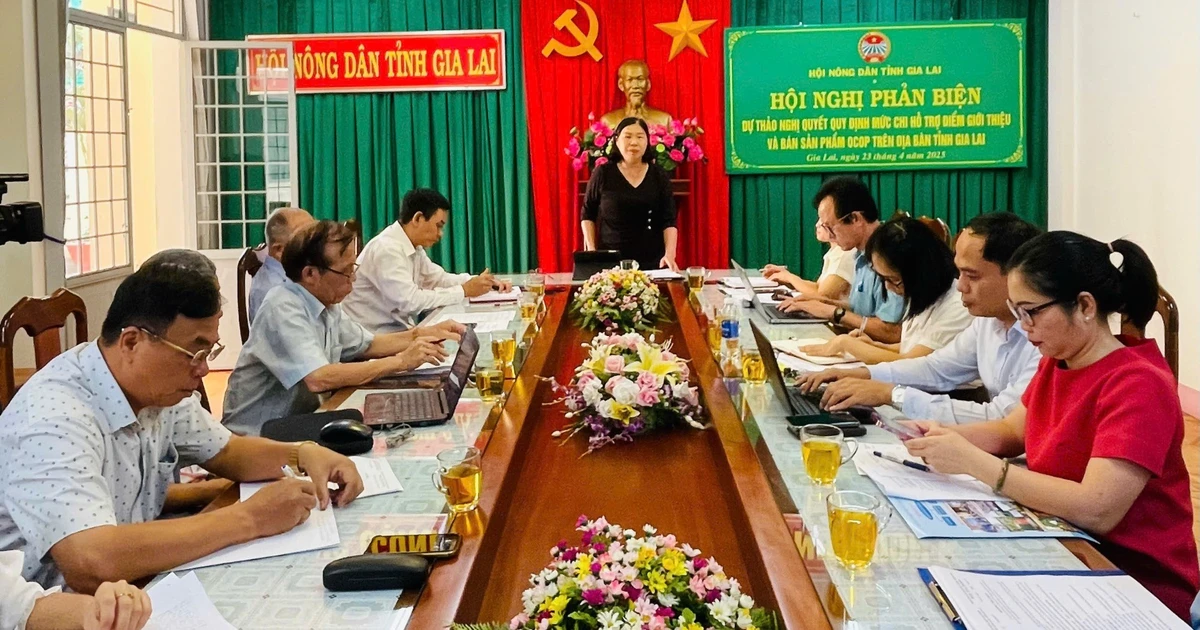







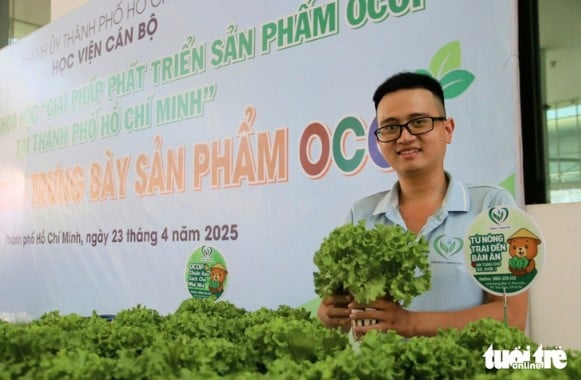
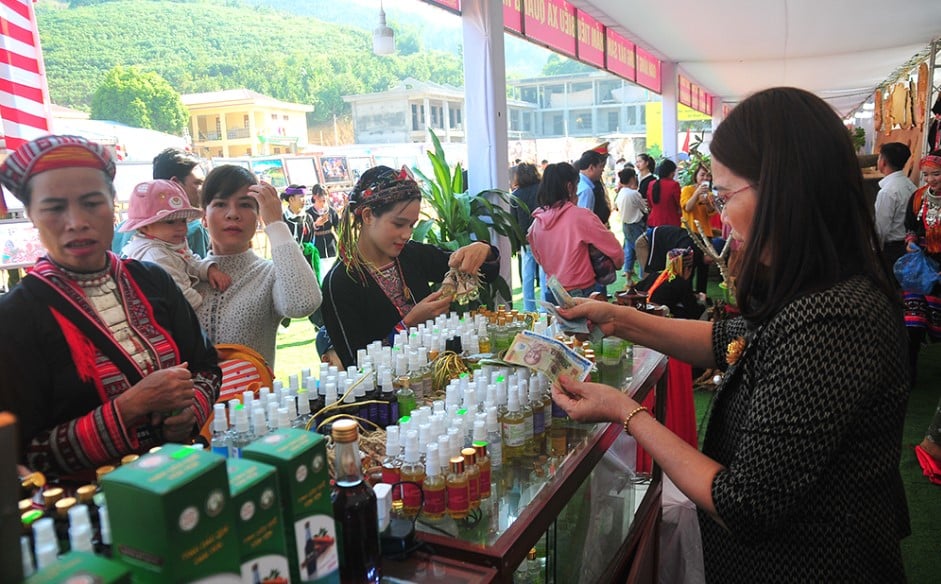
Comment (0)